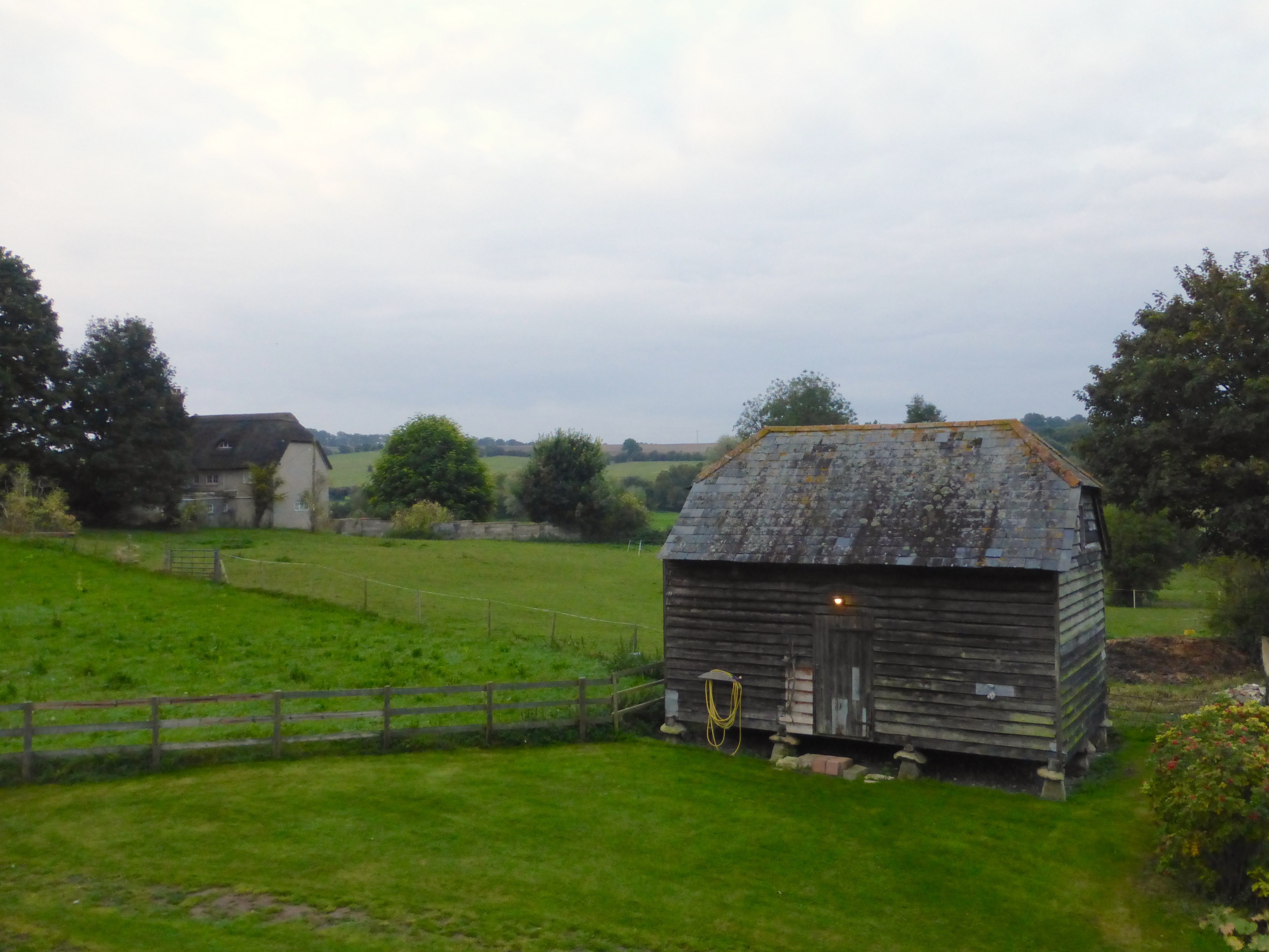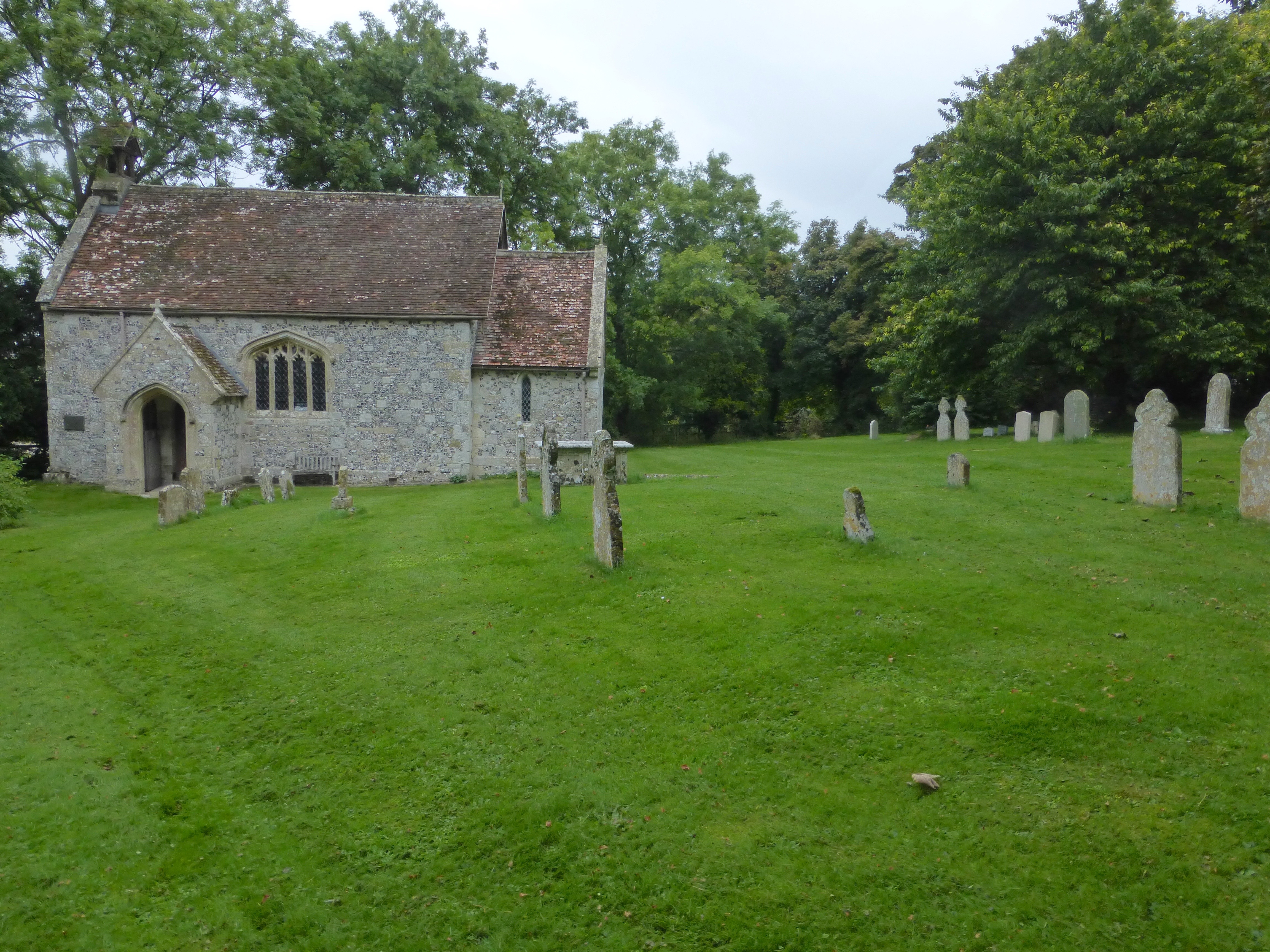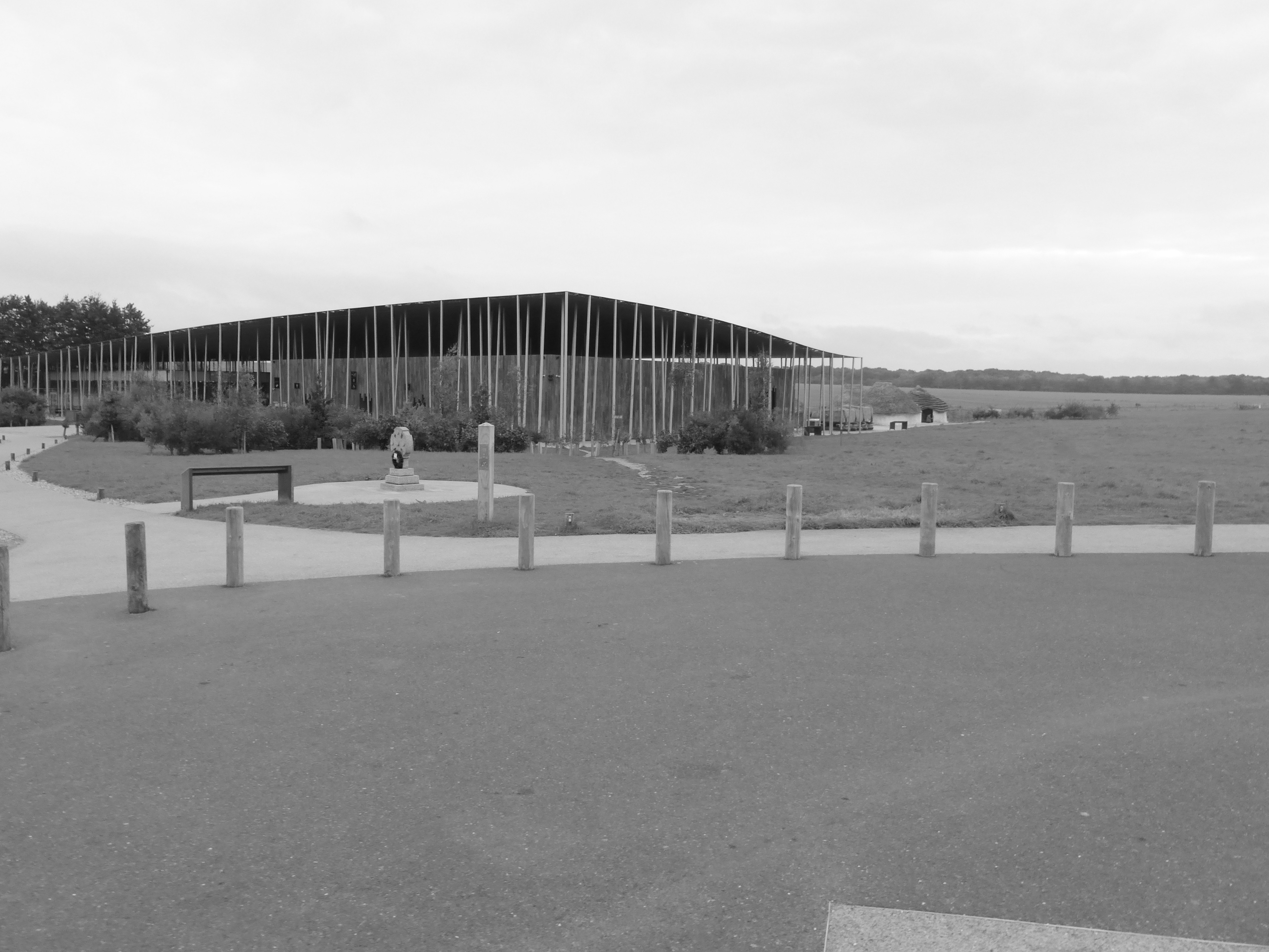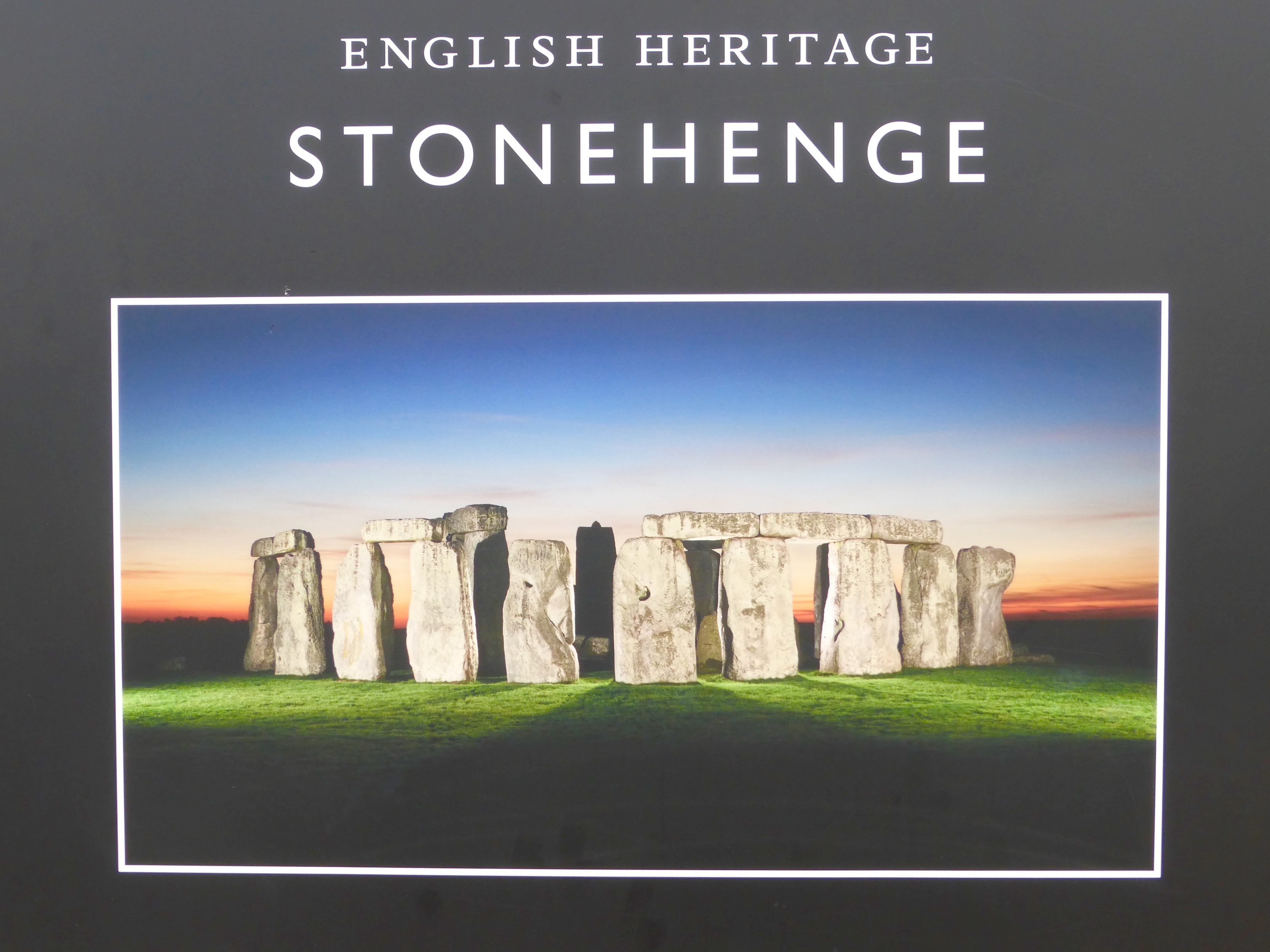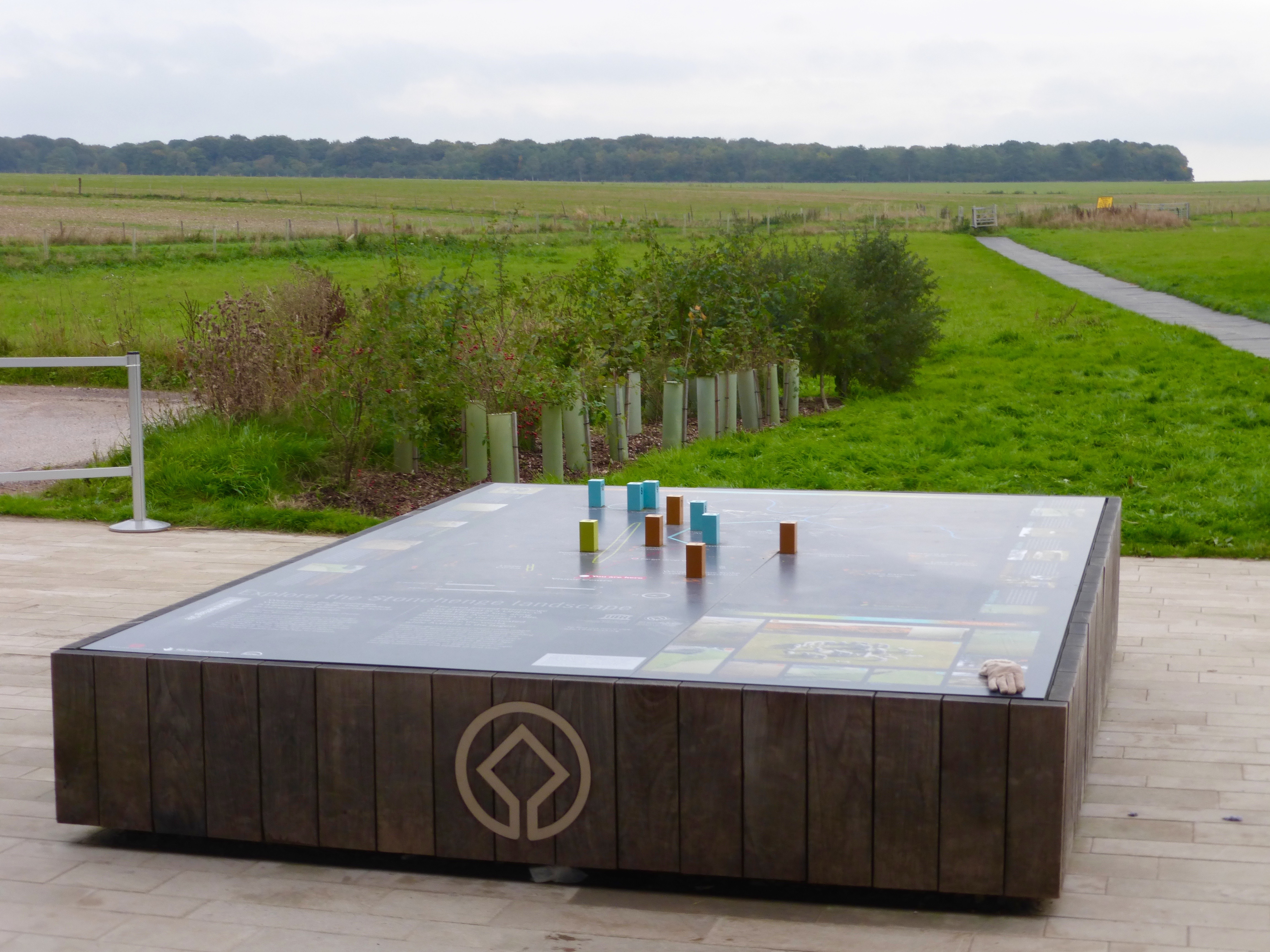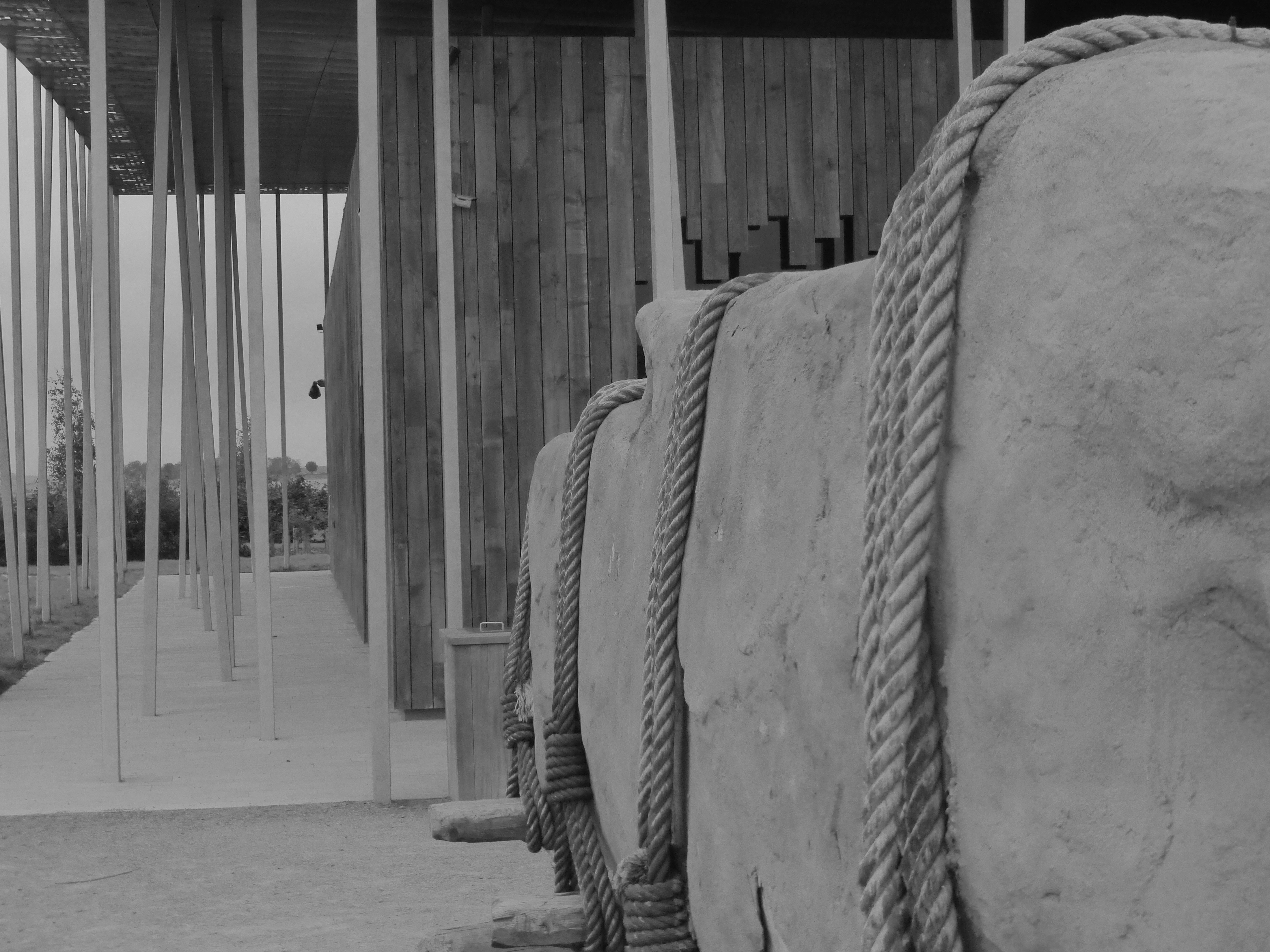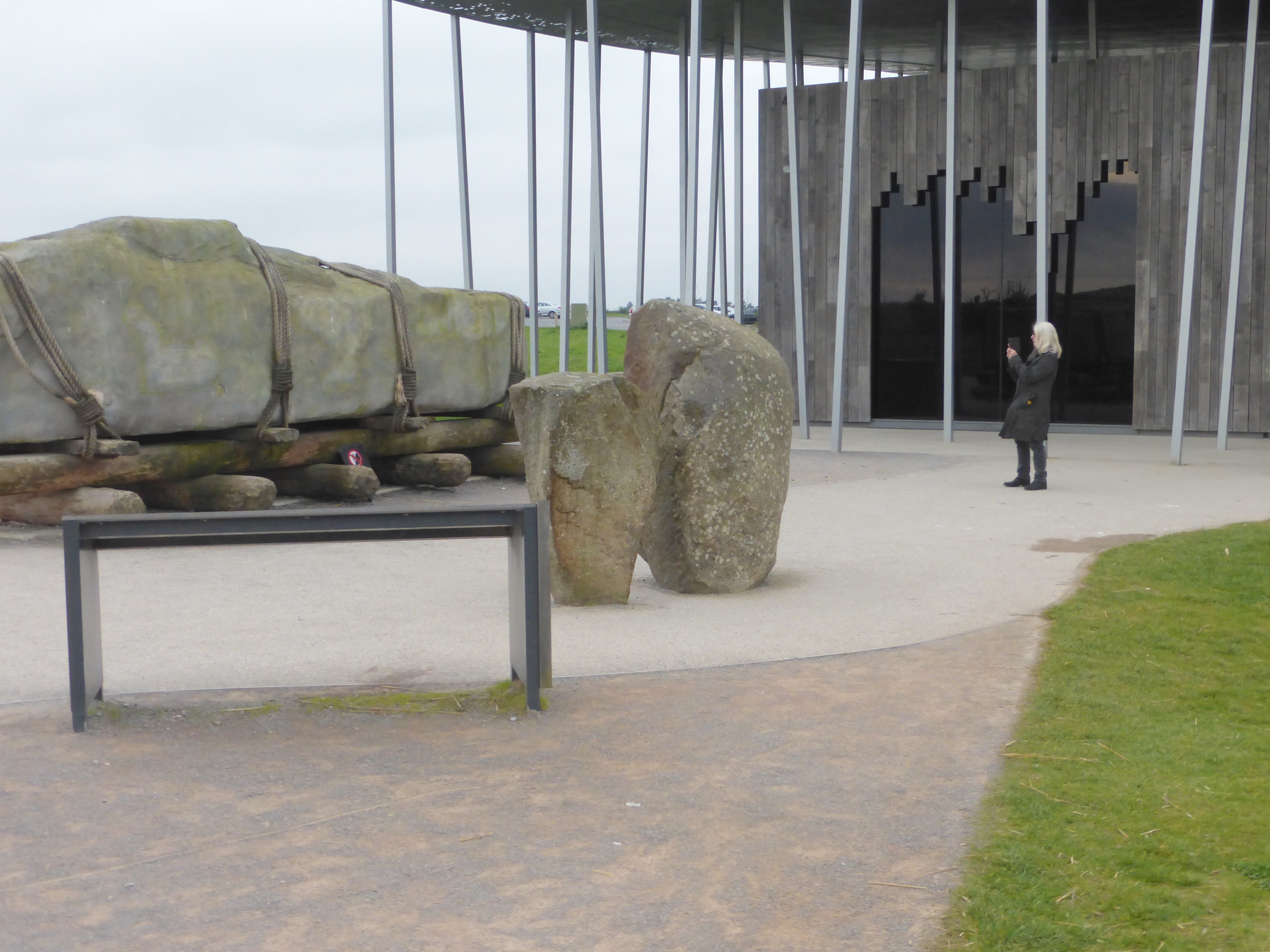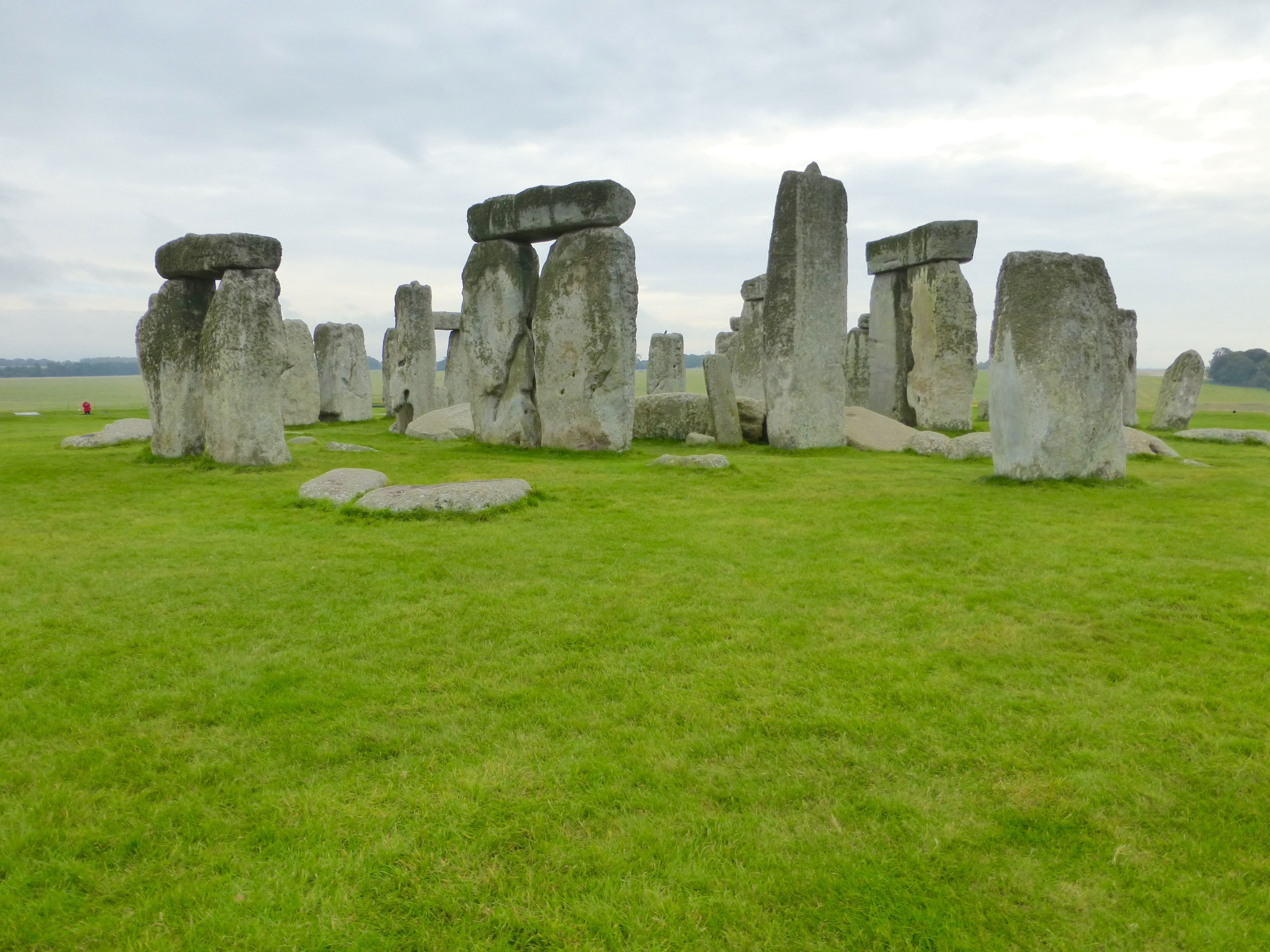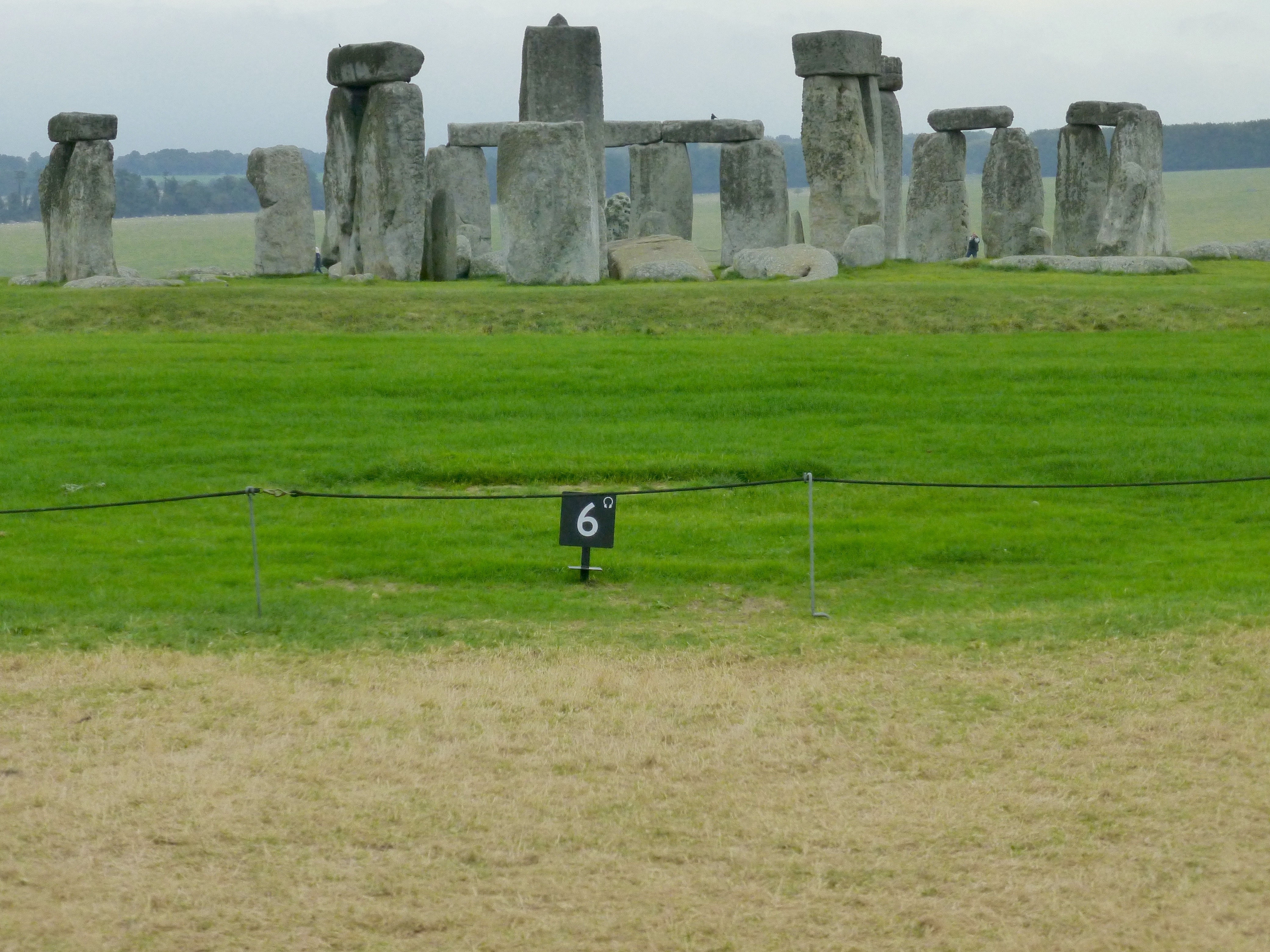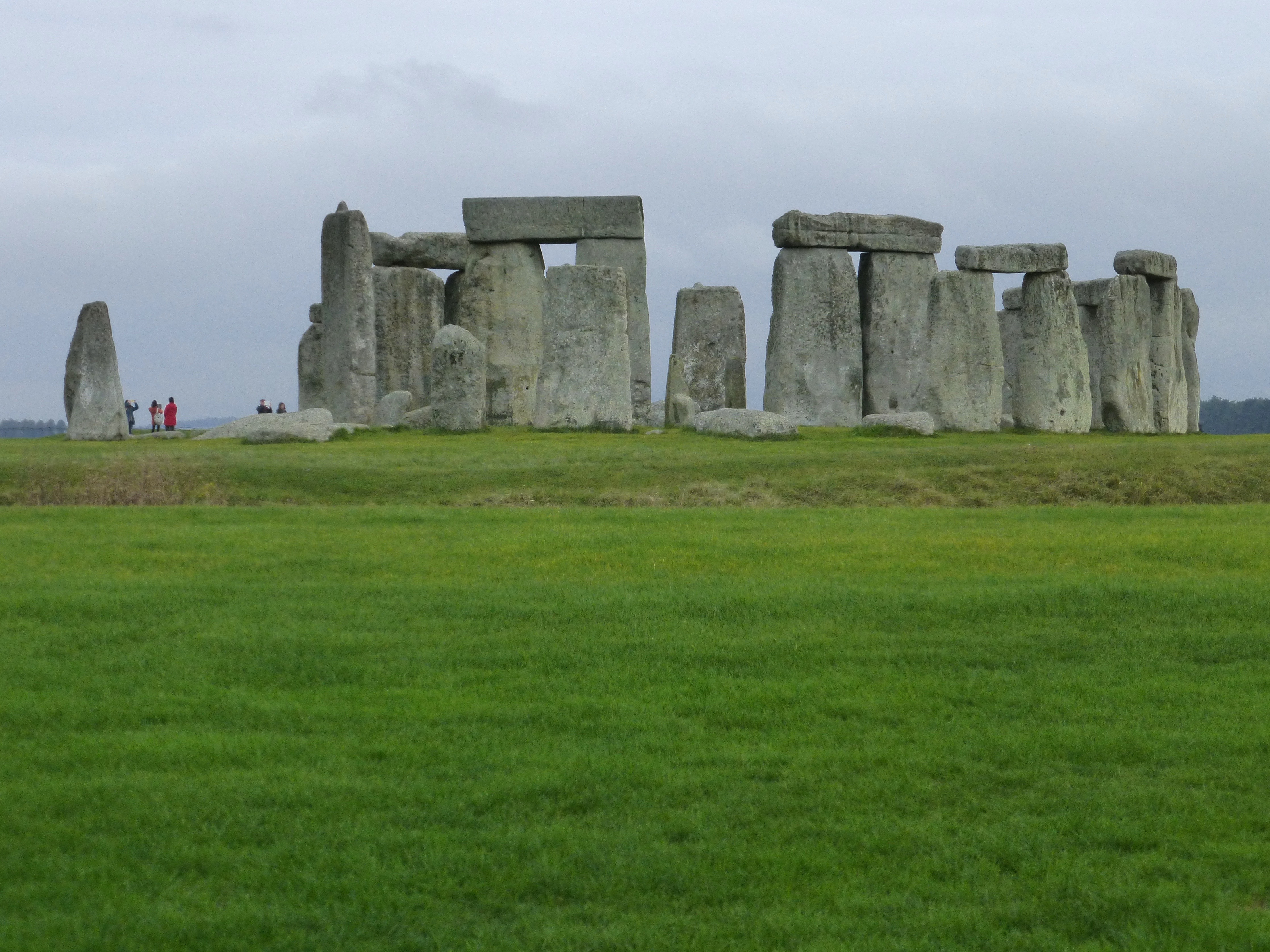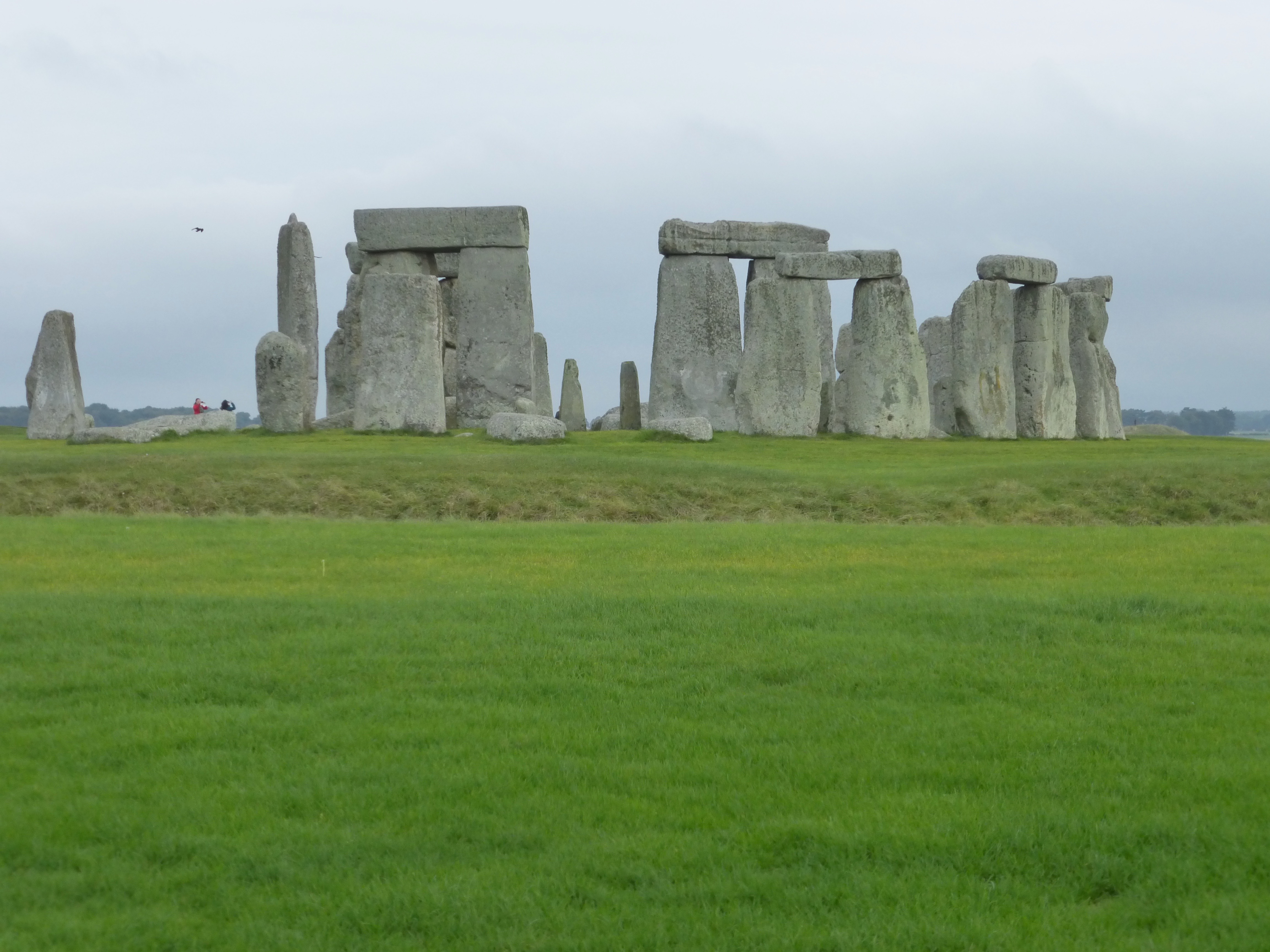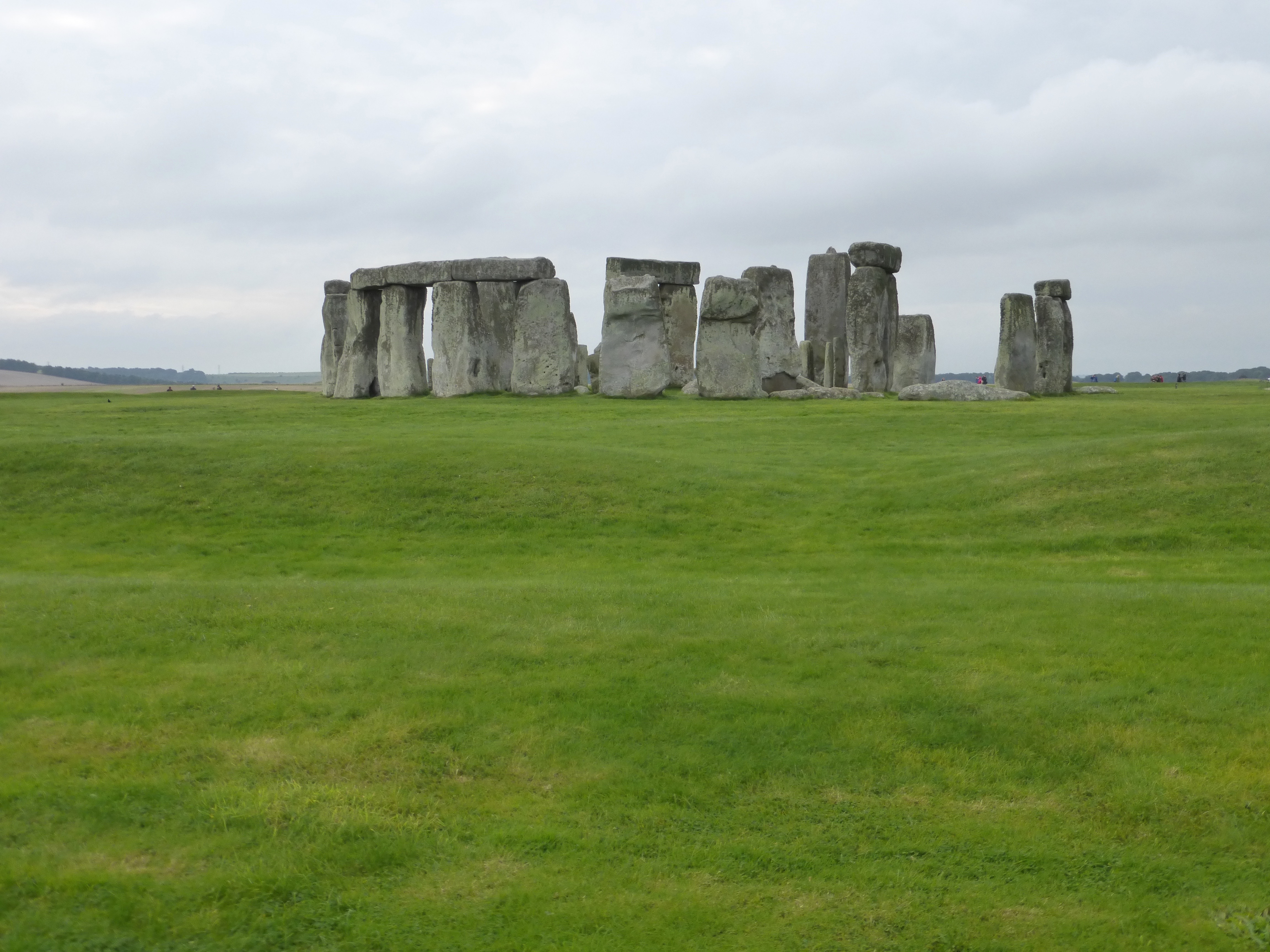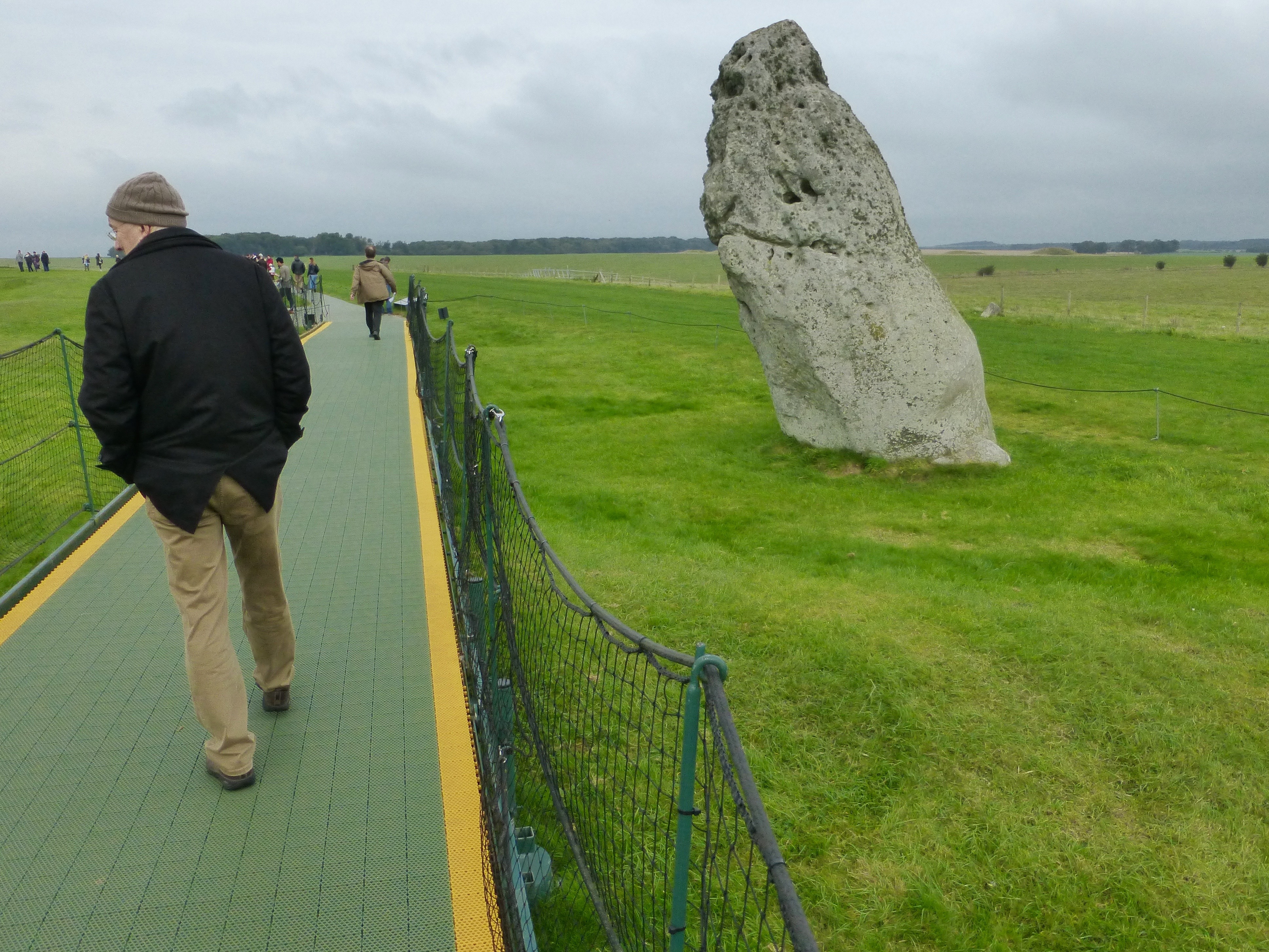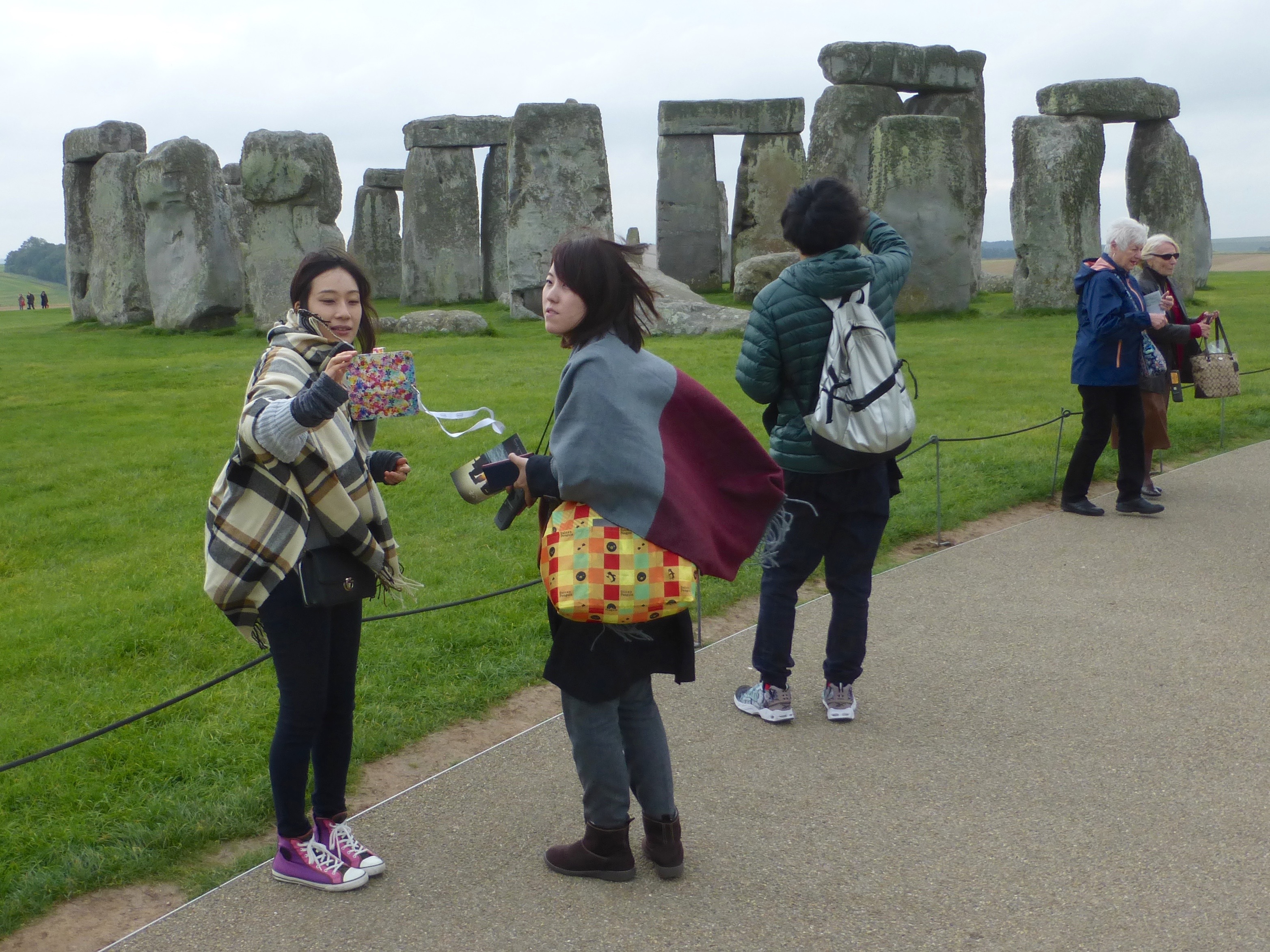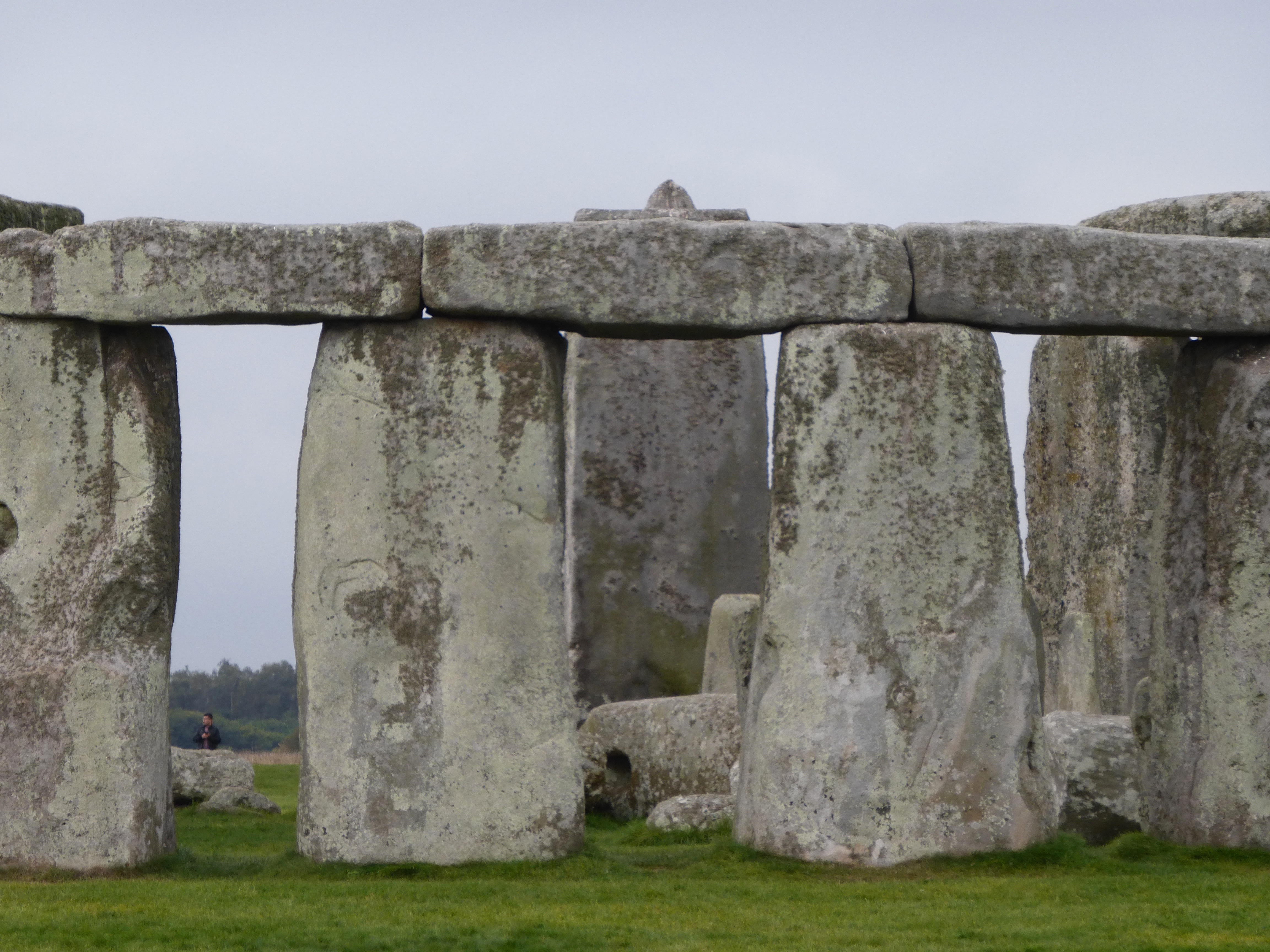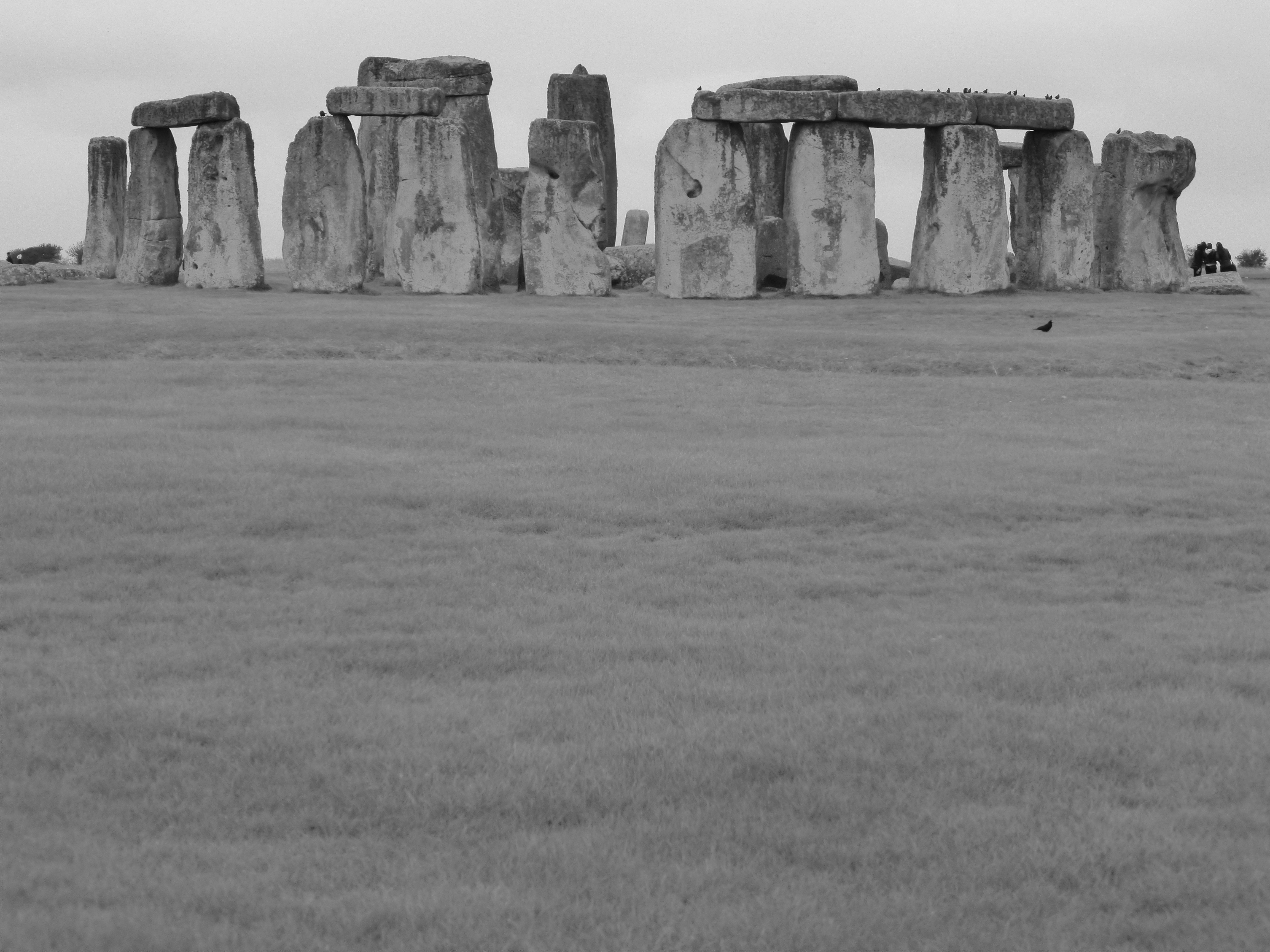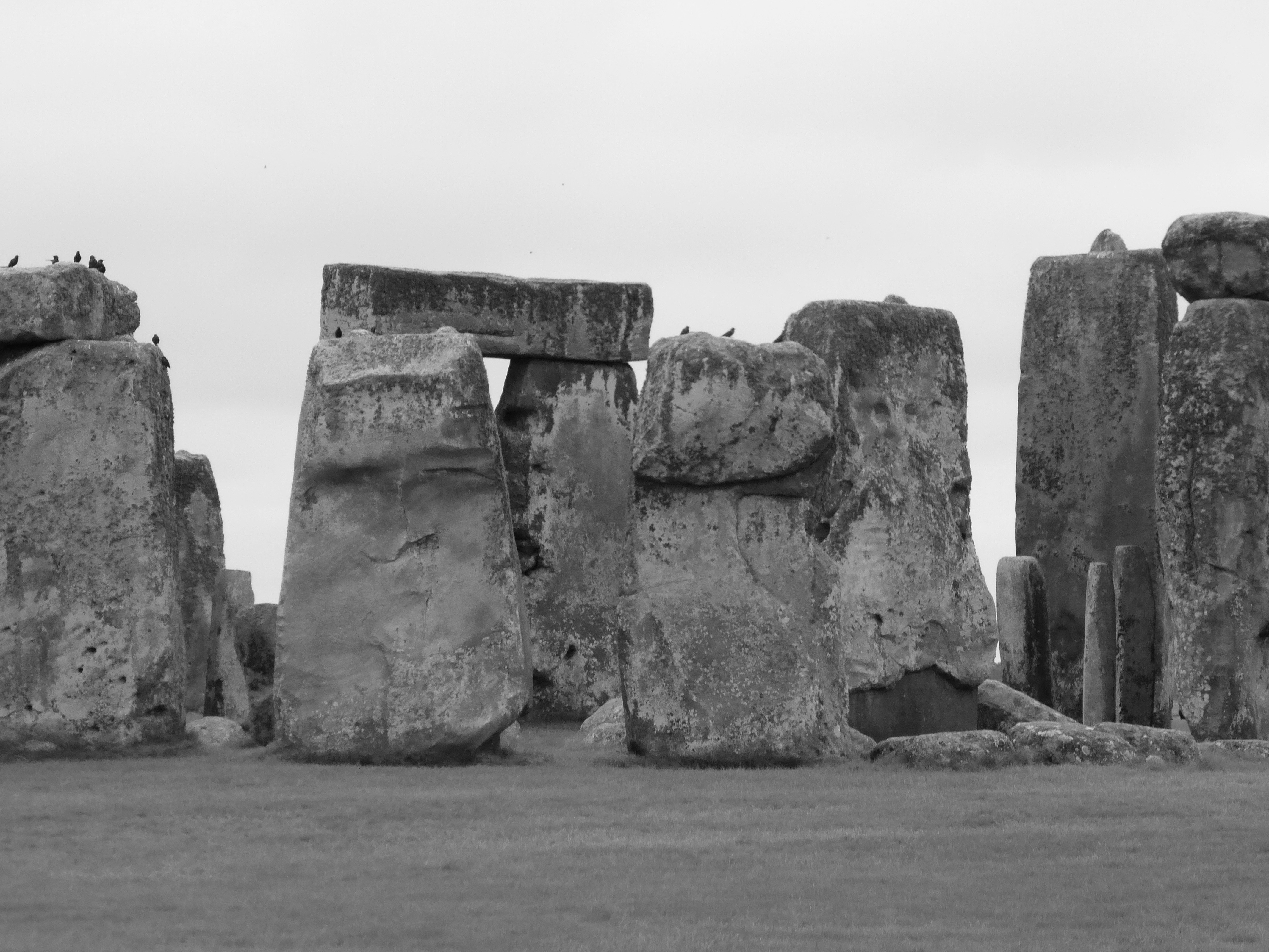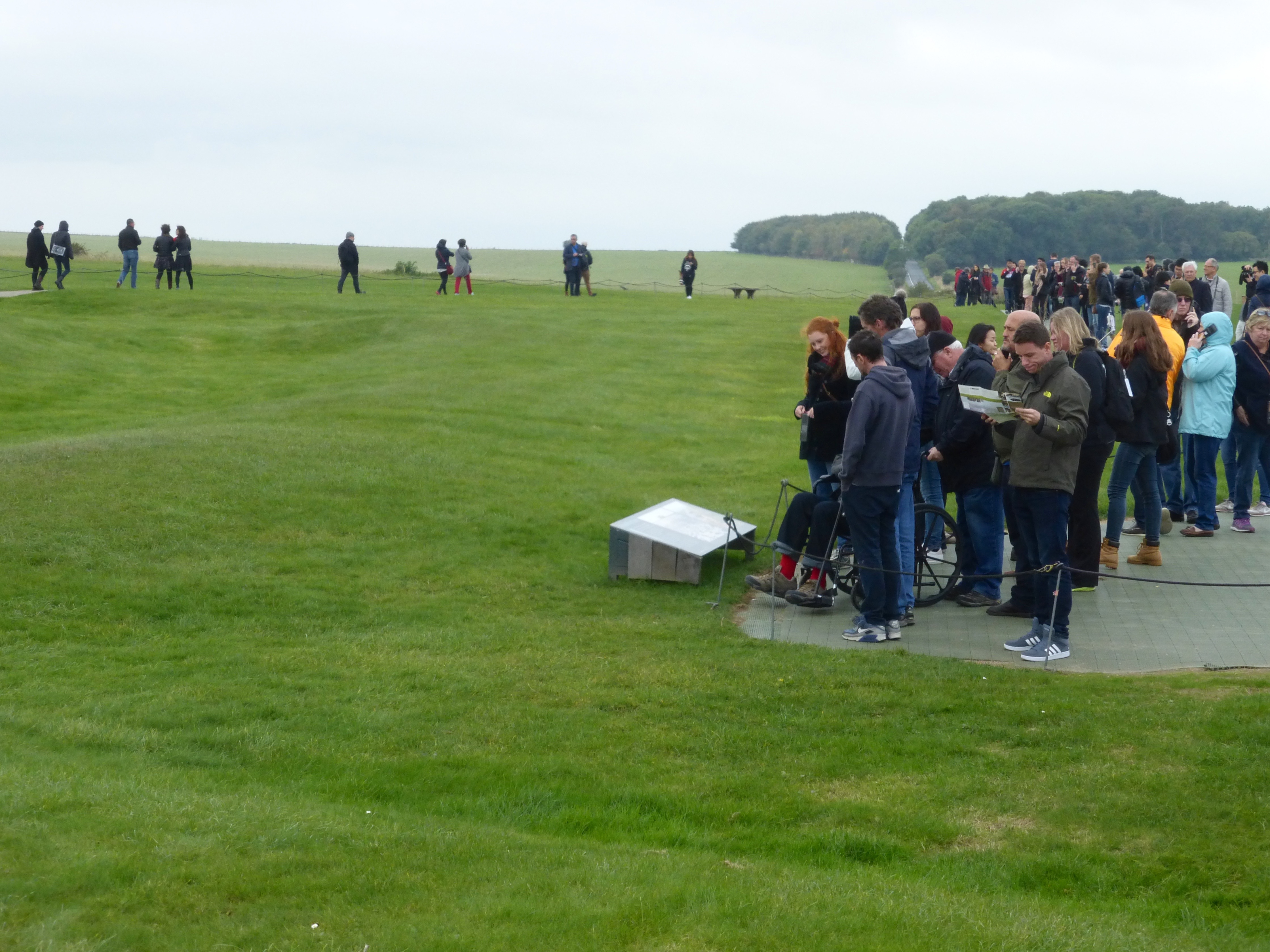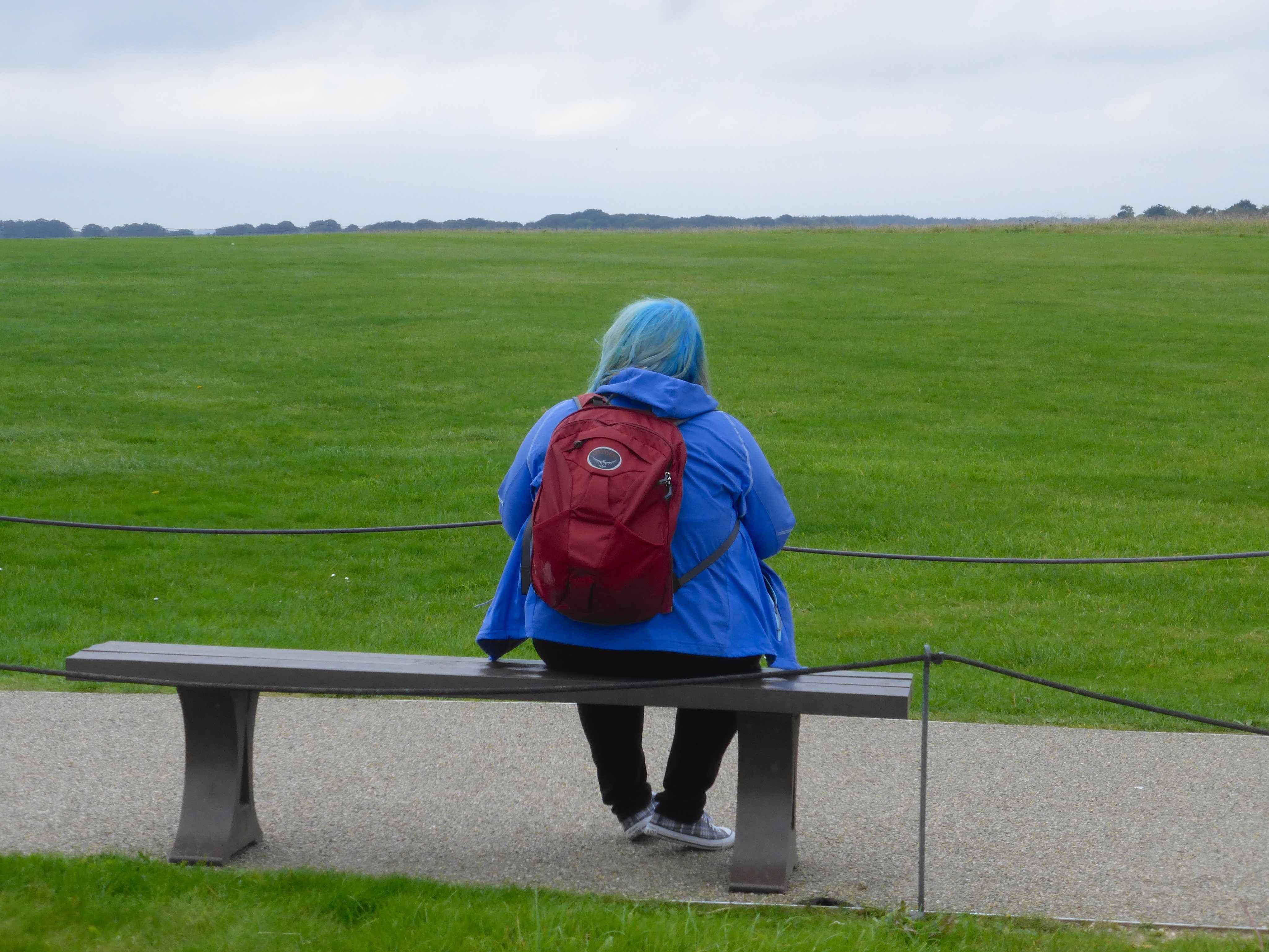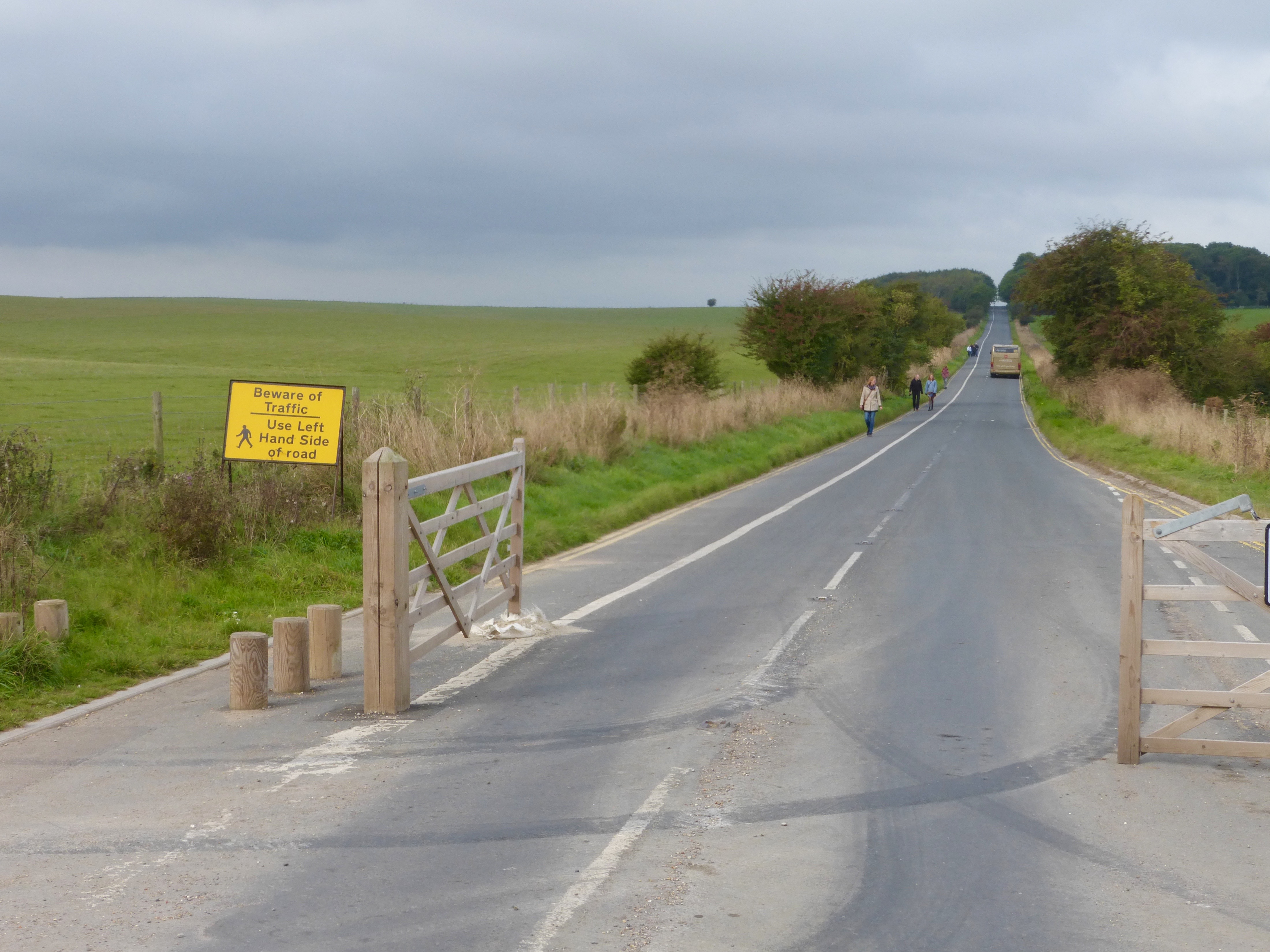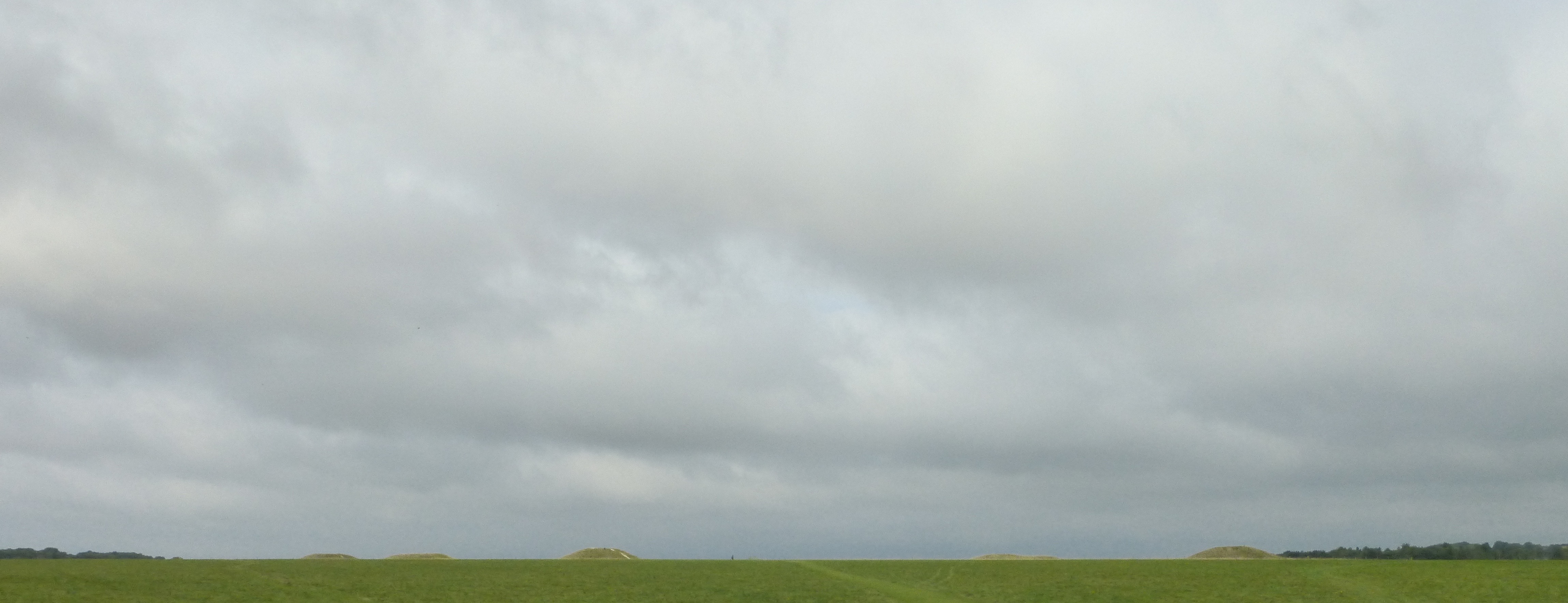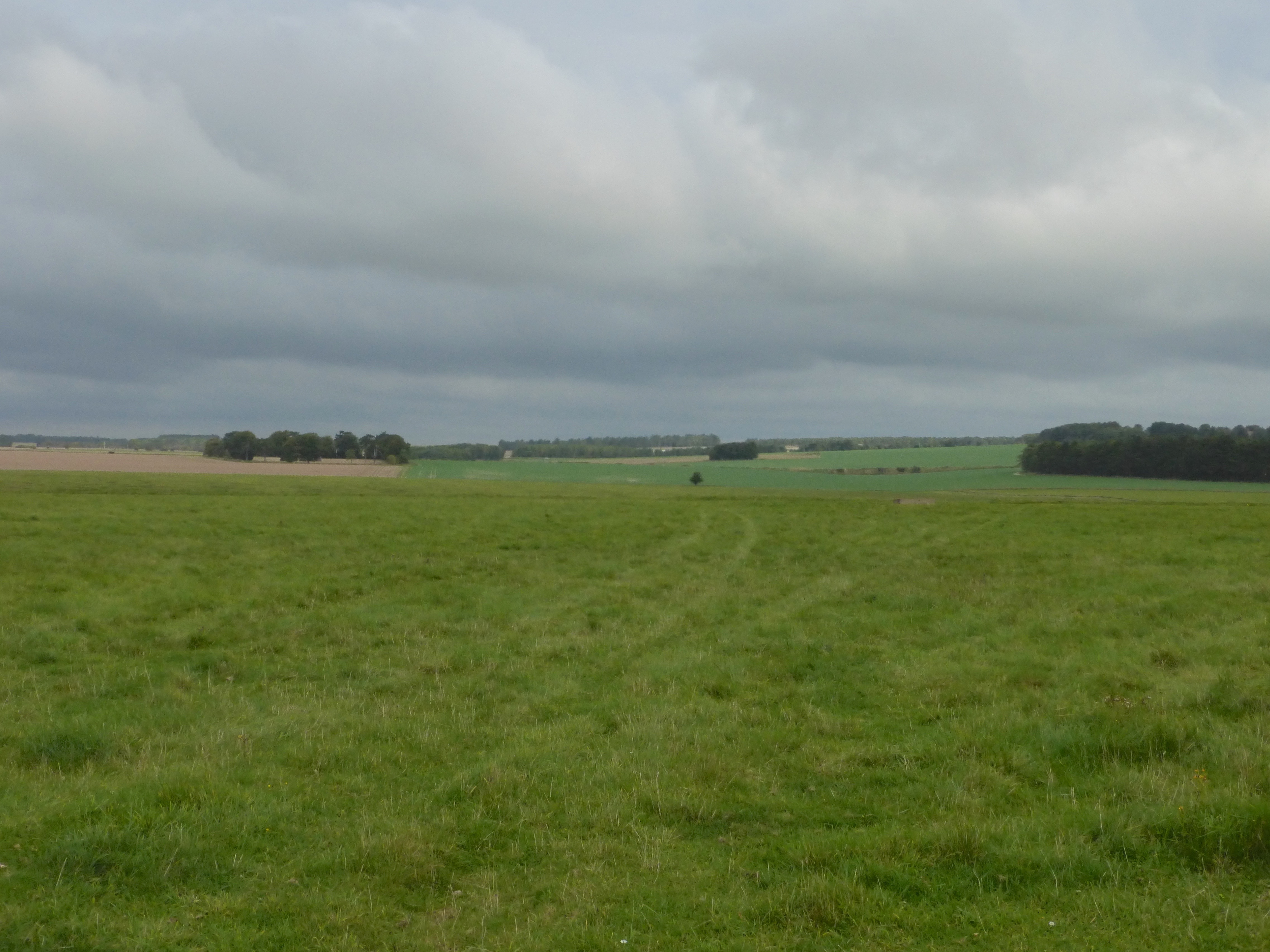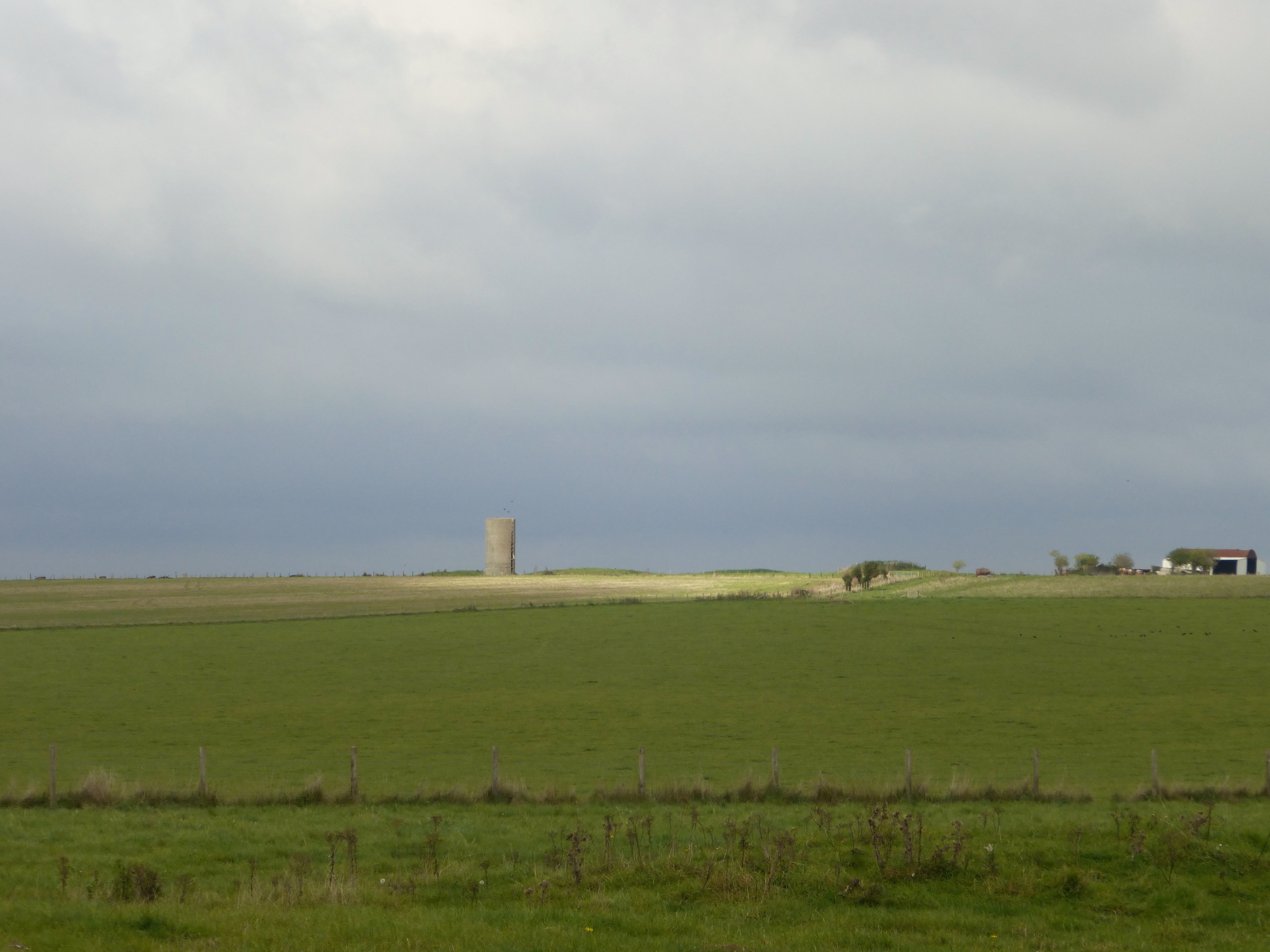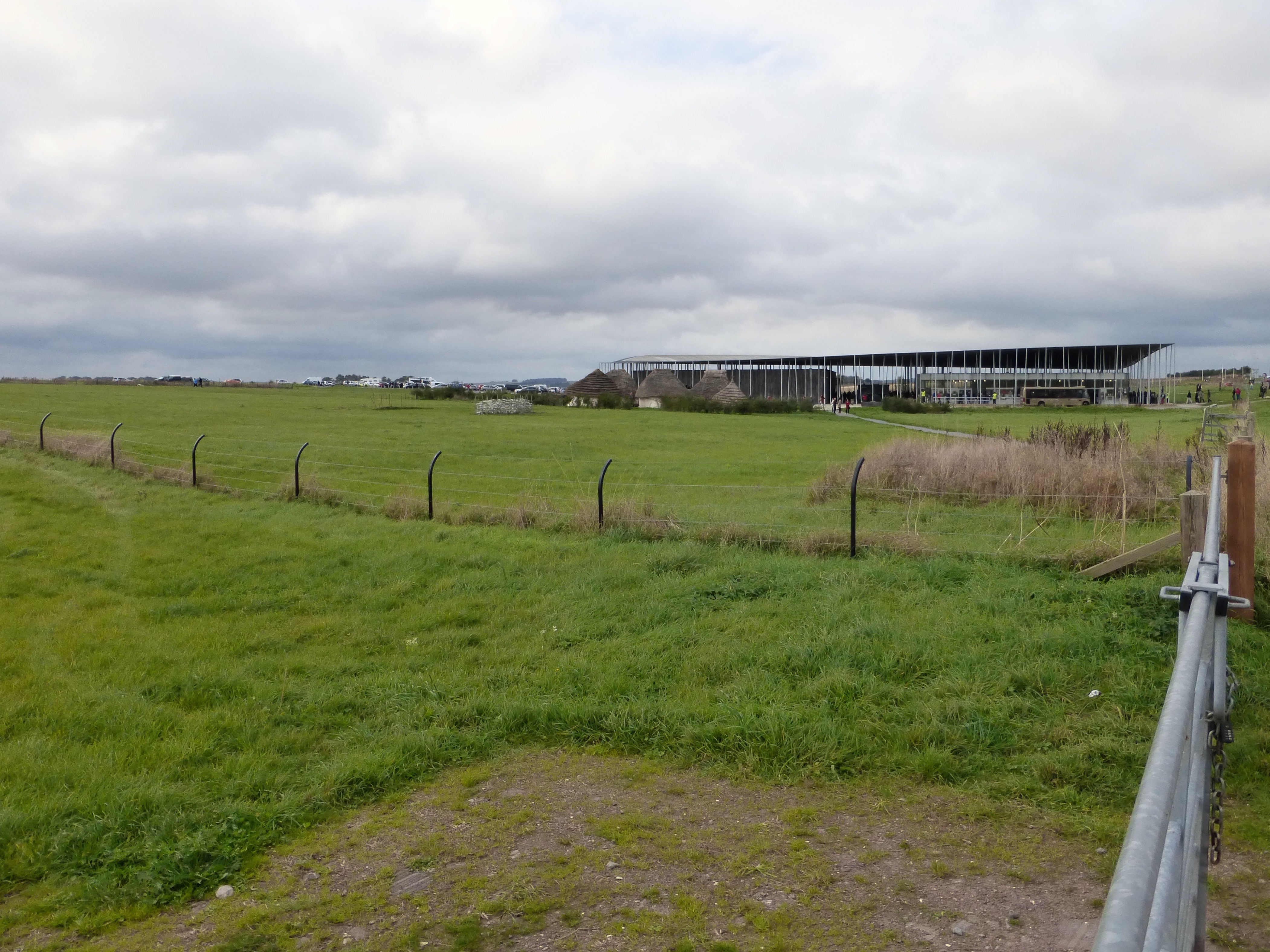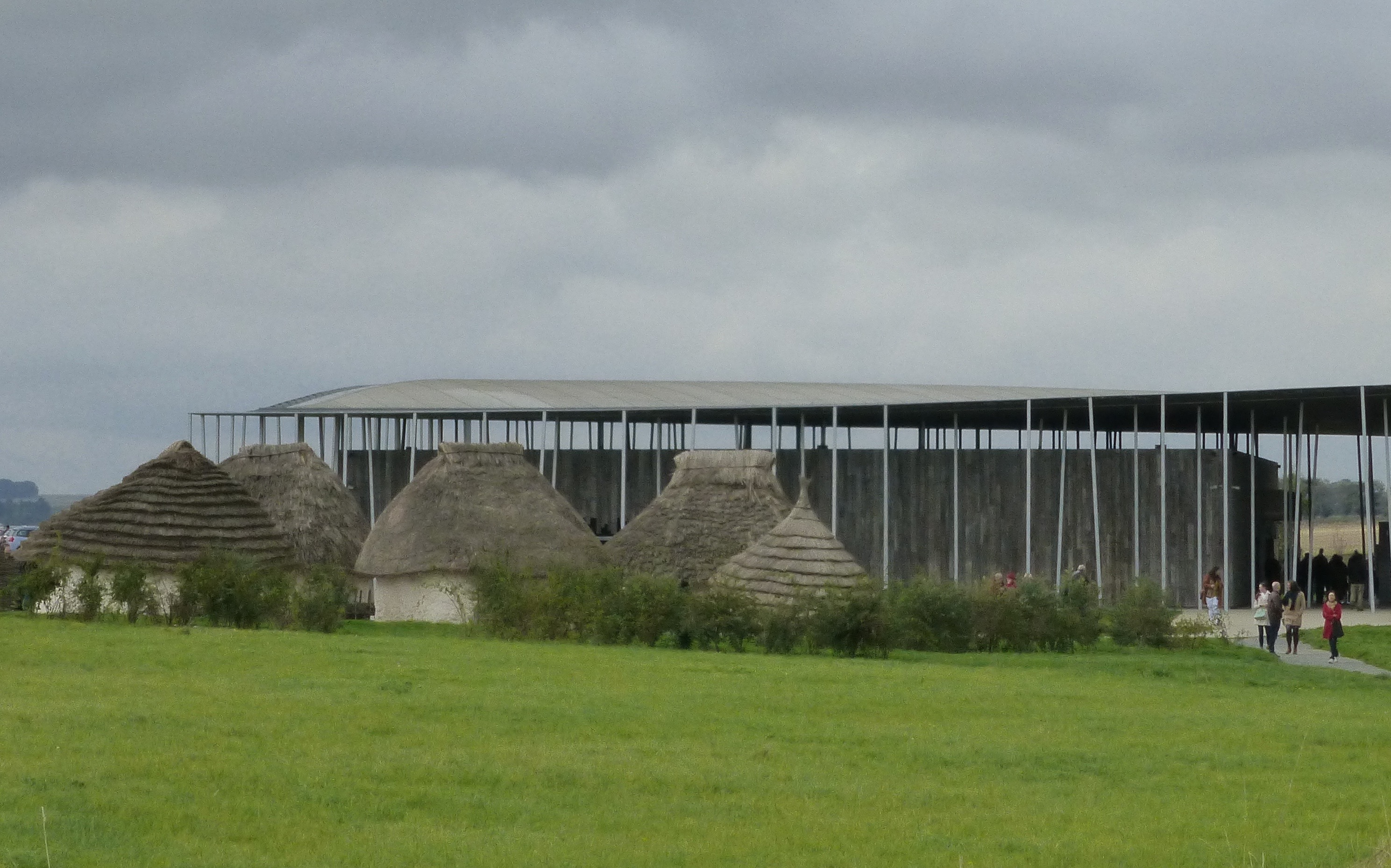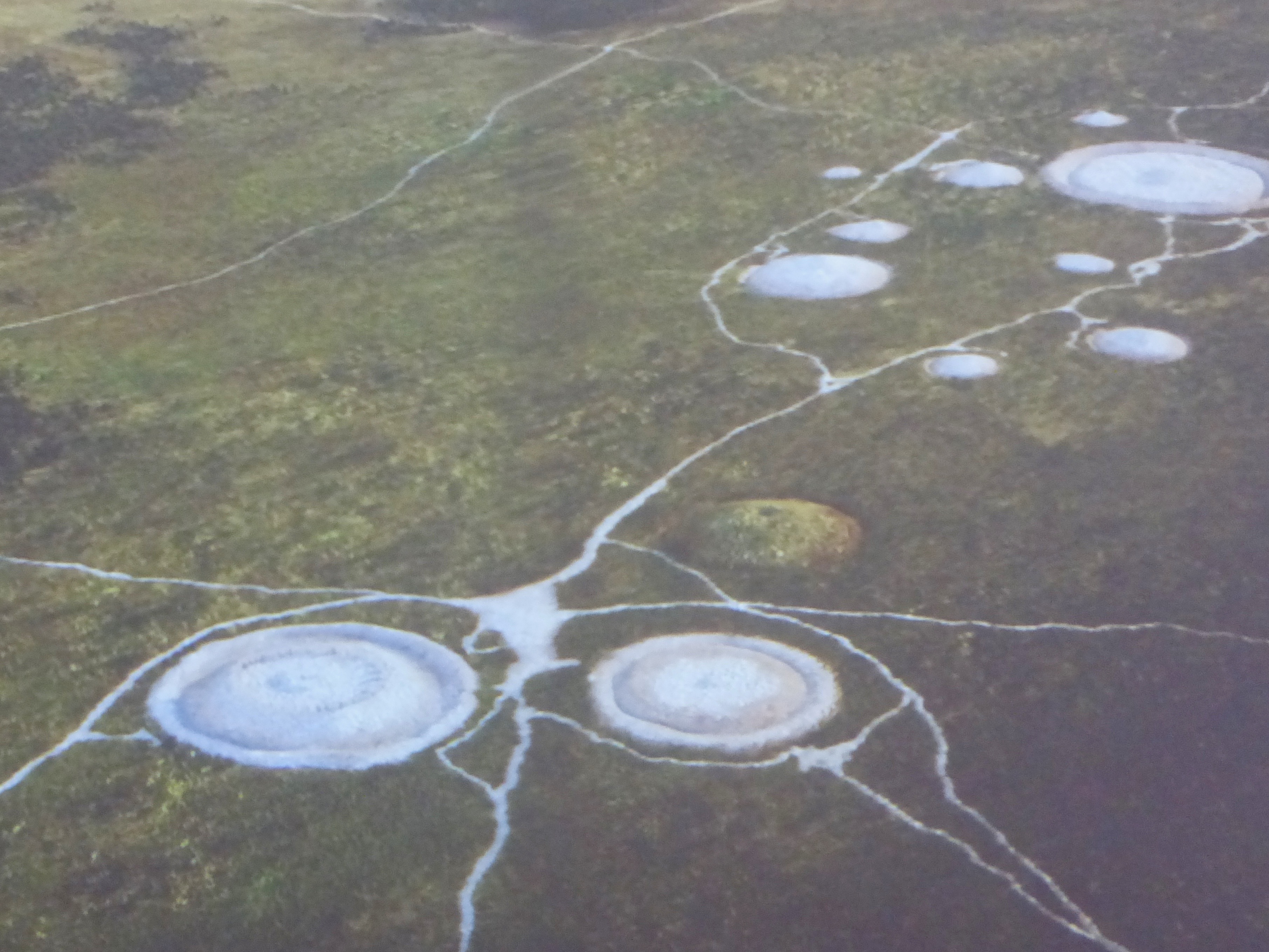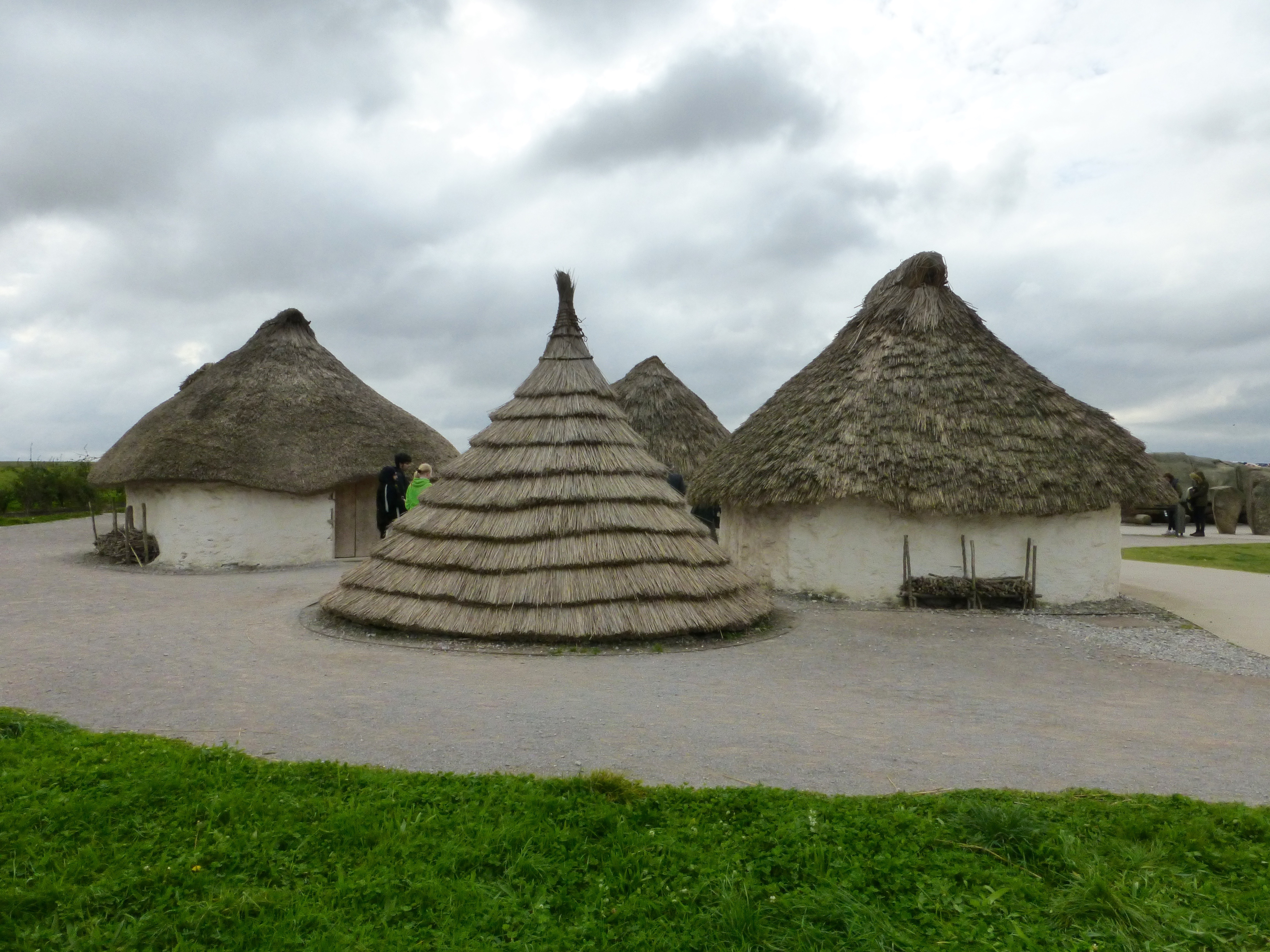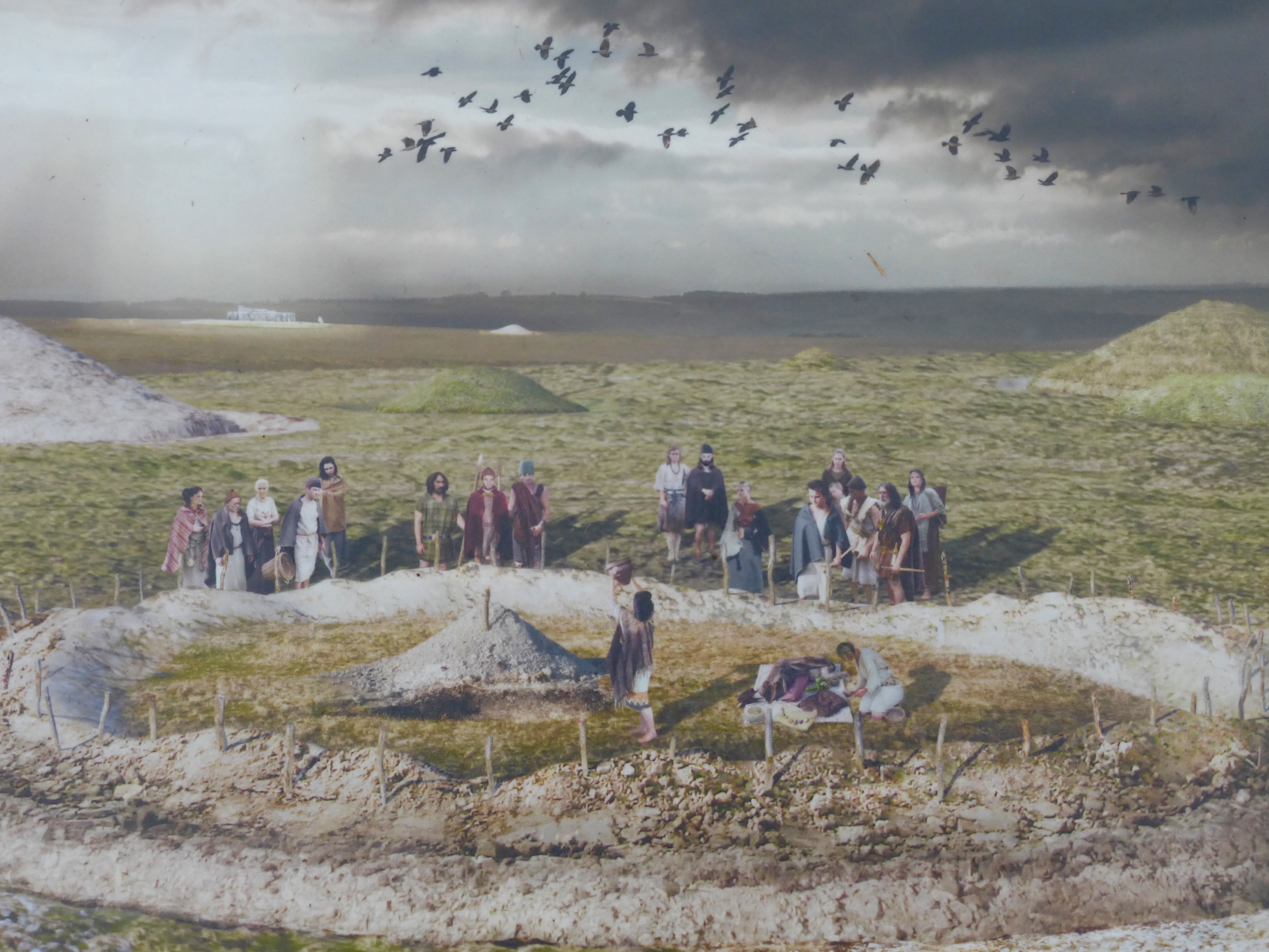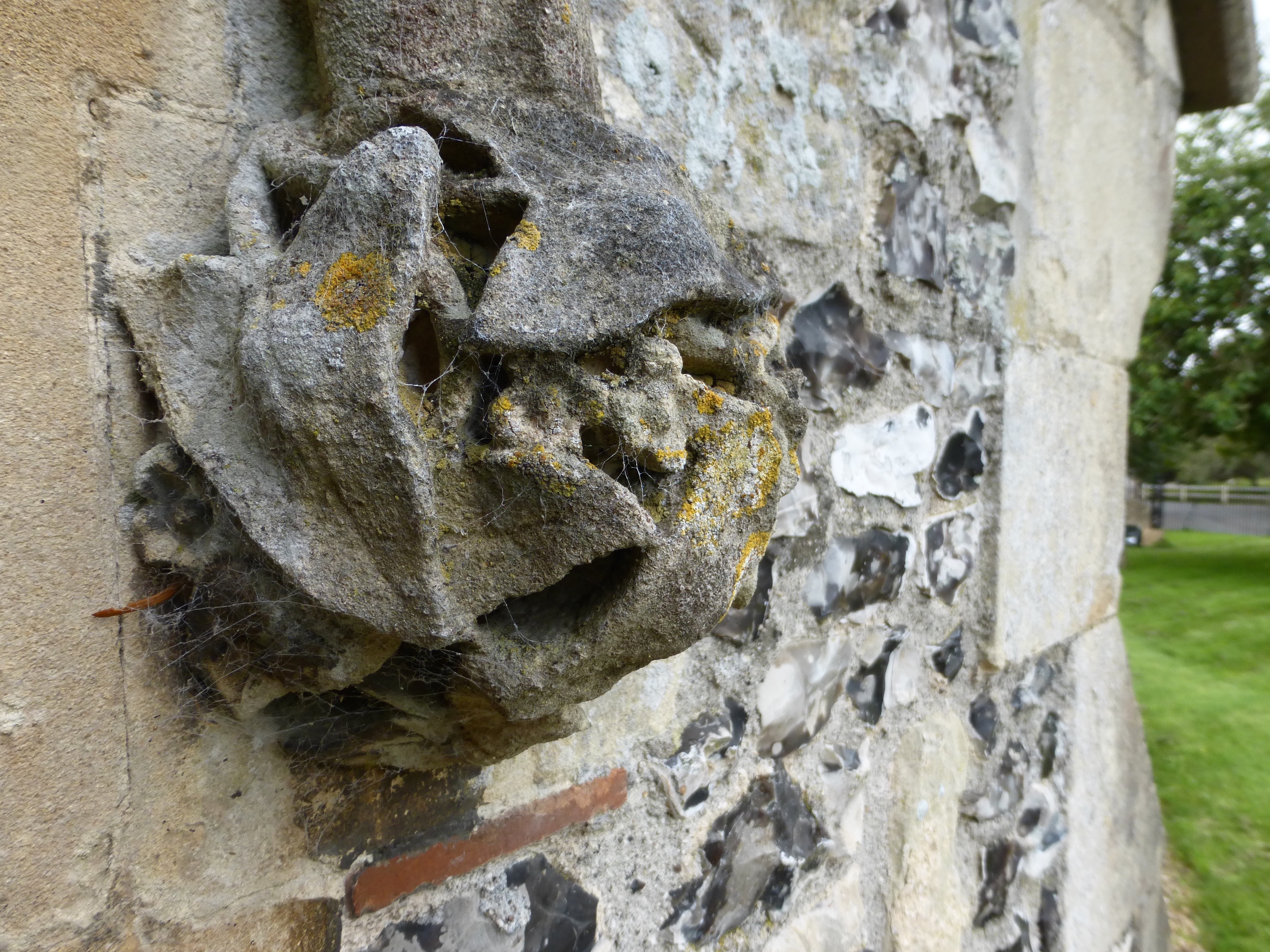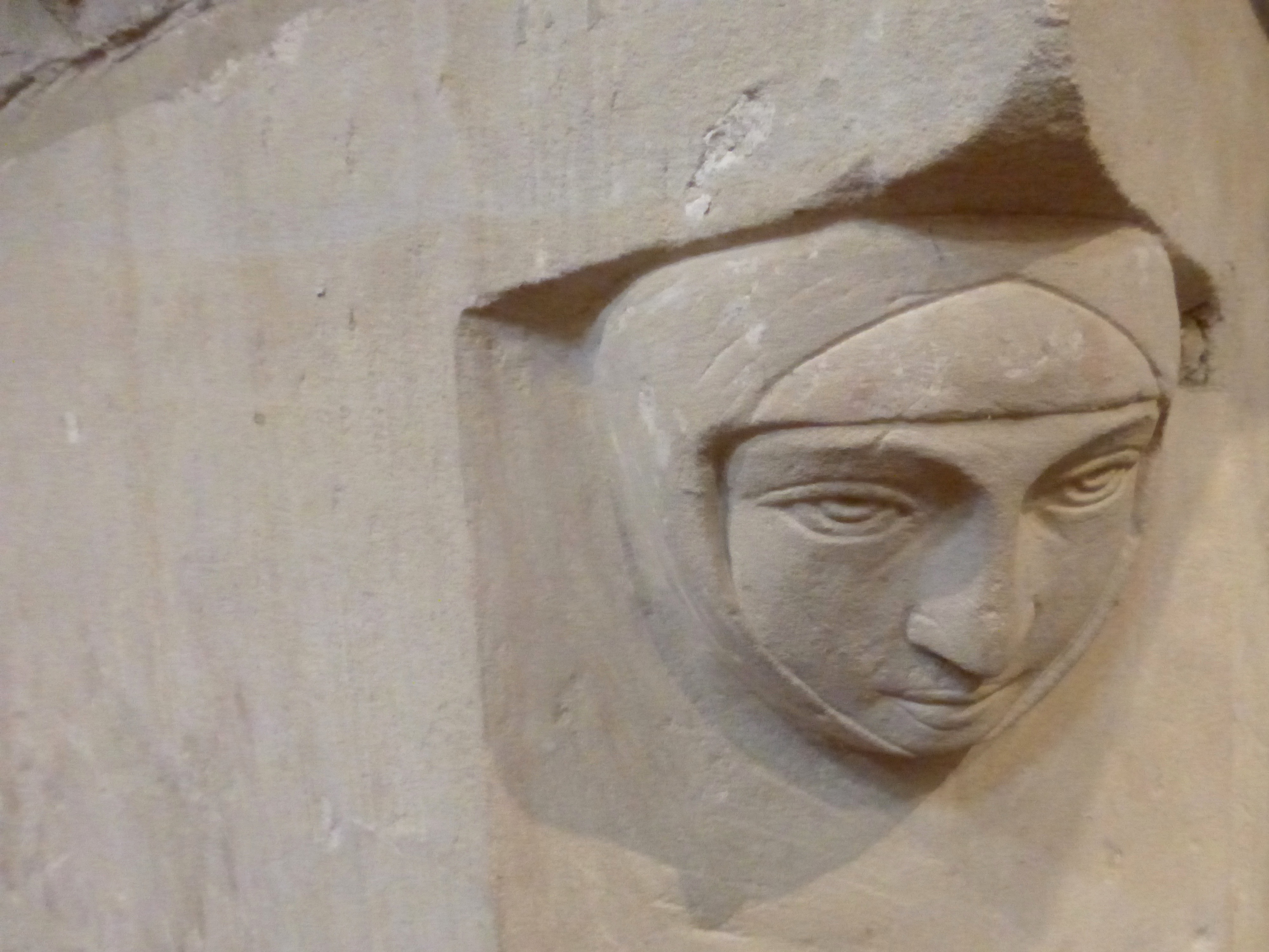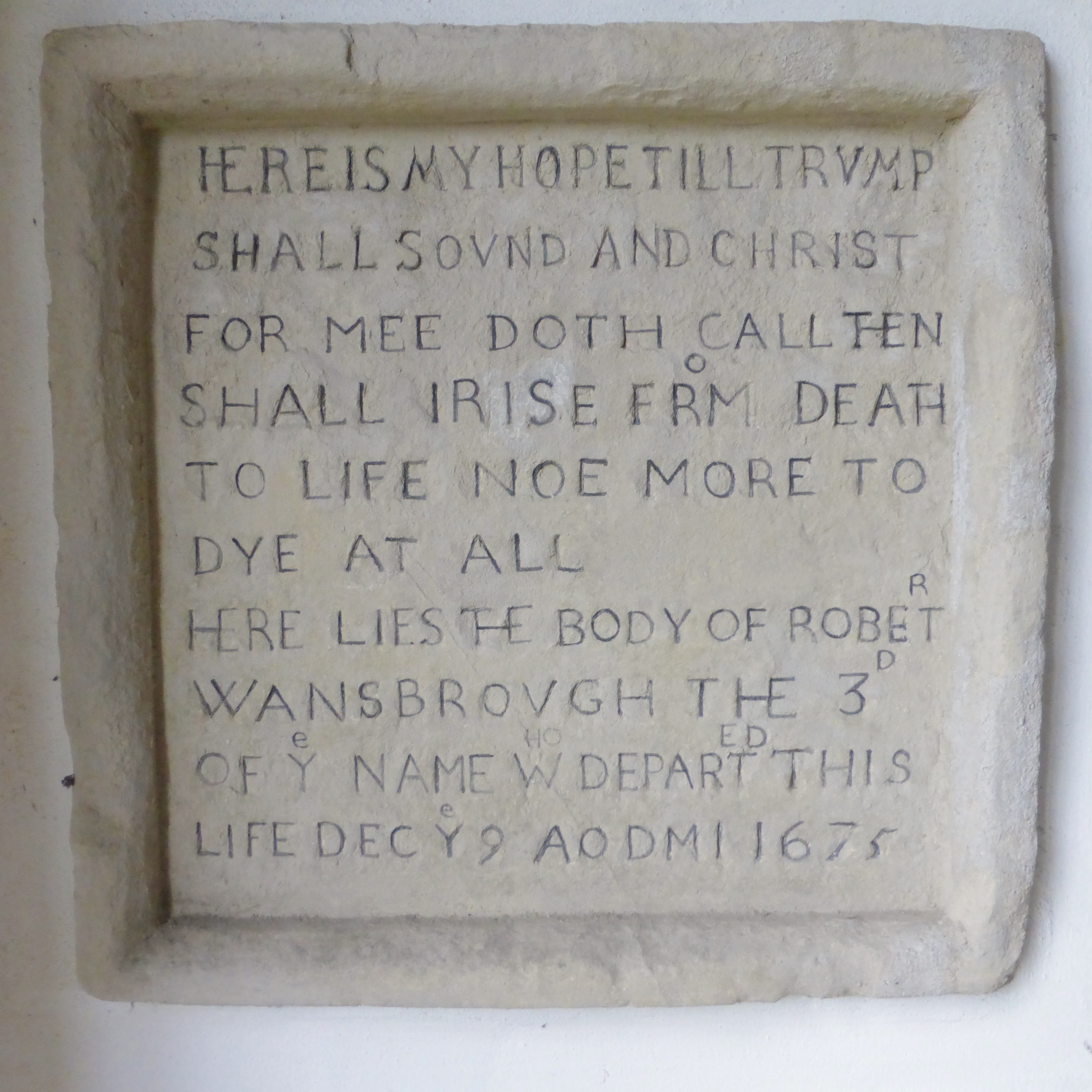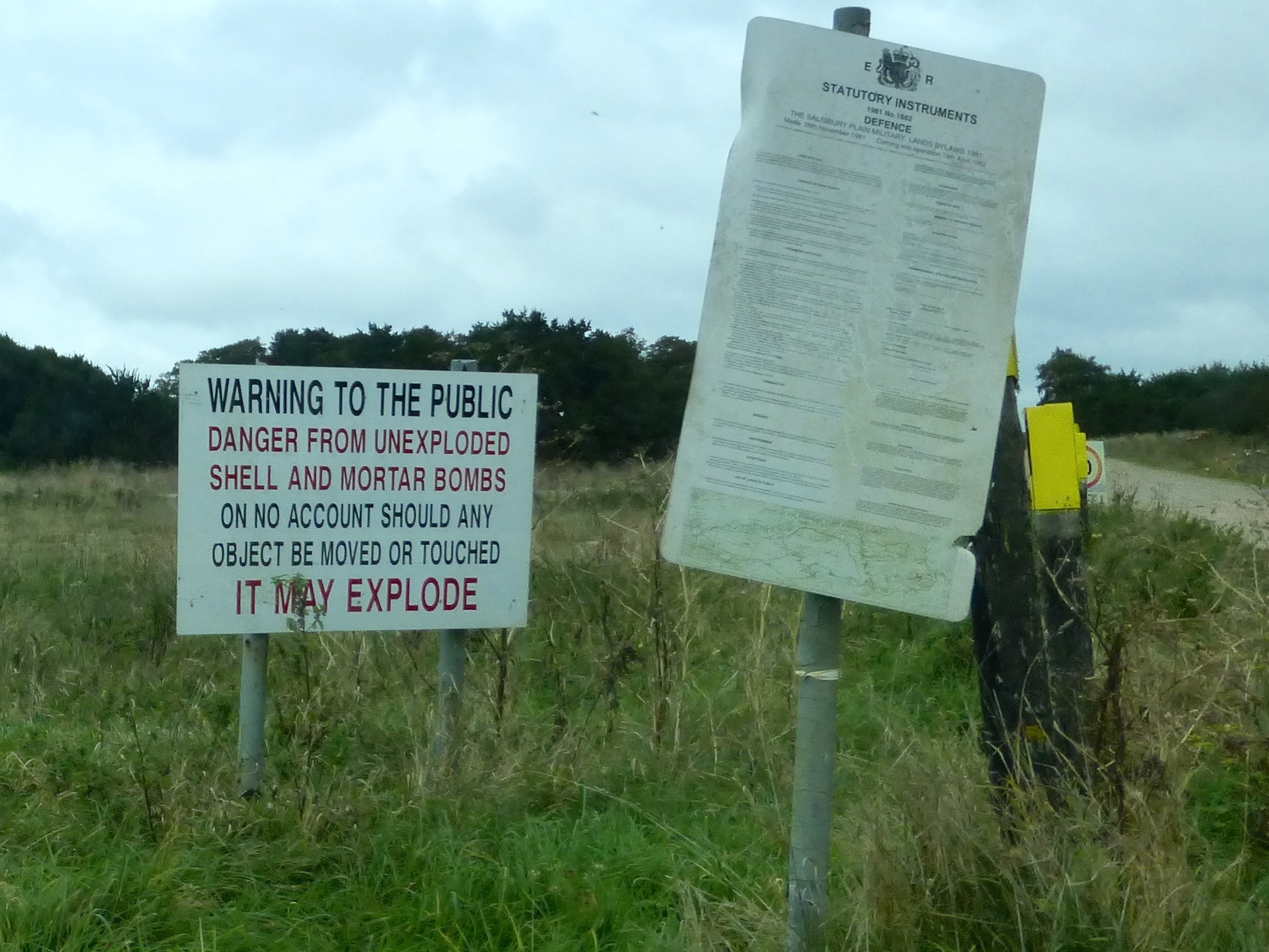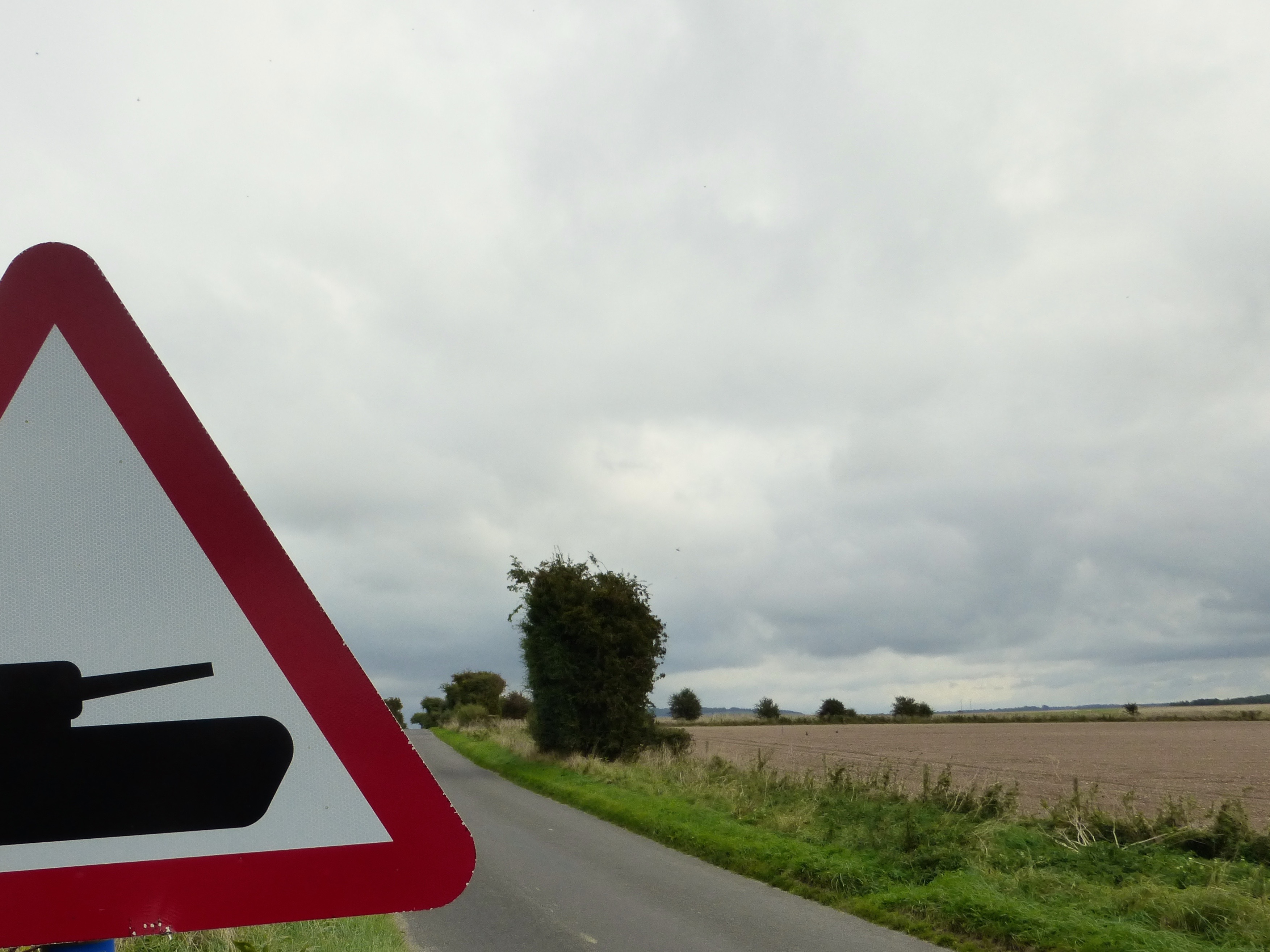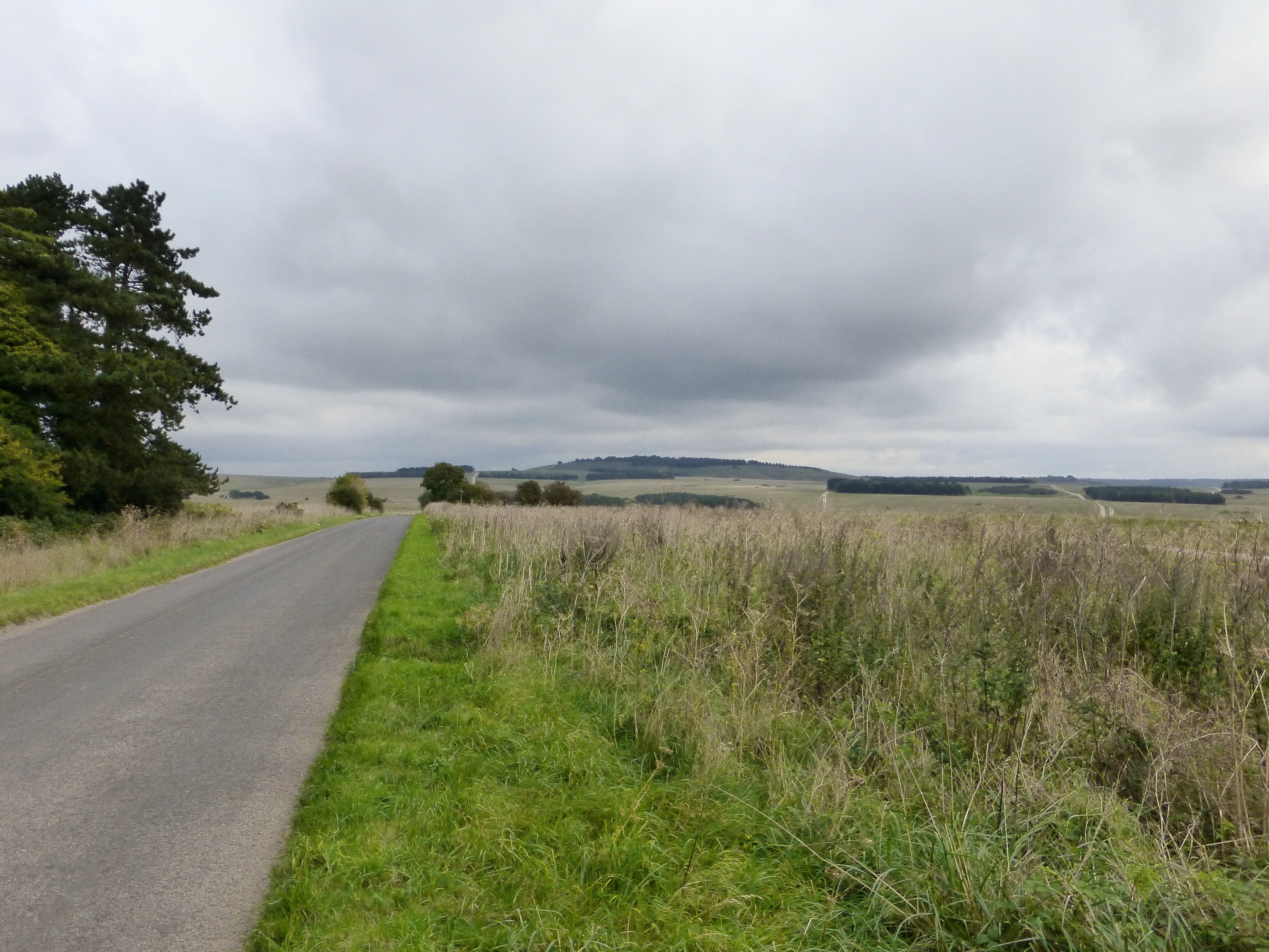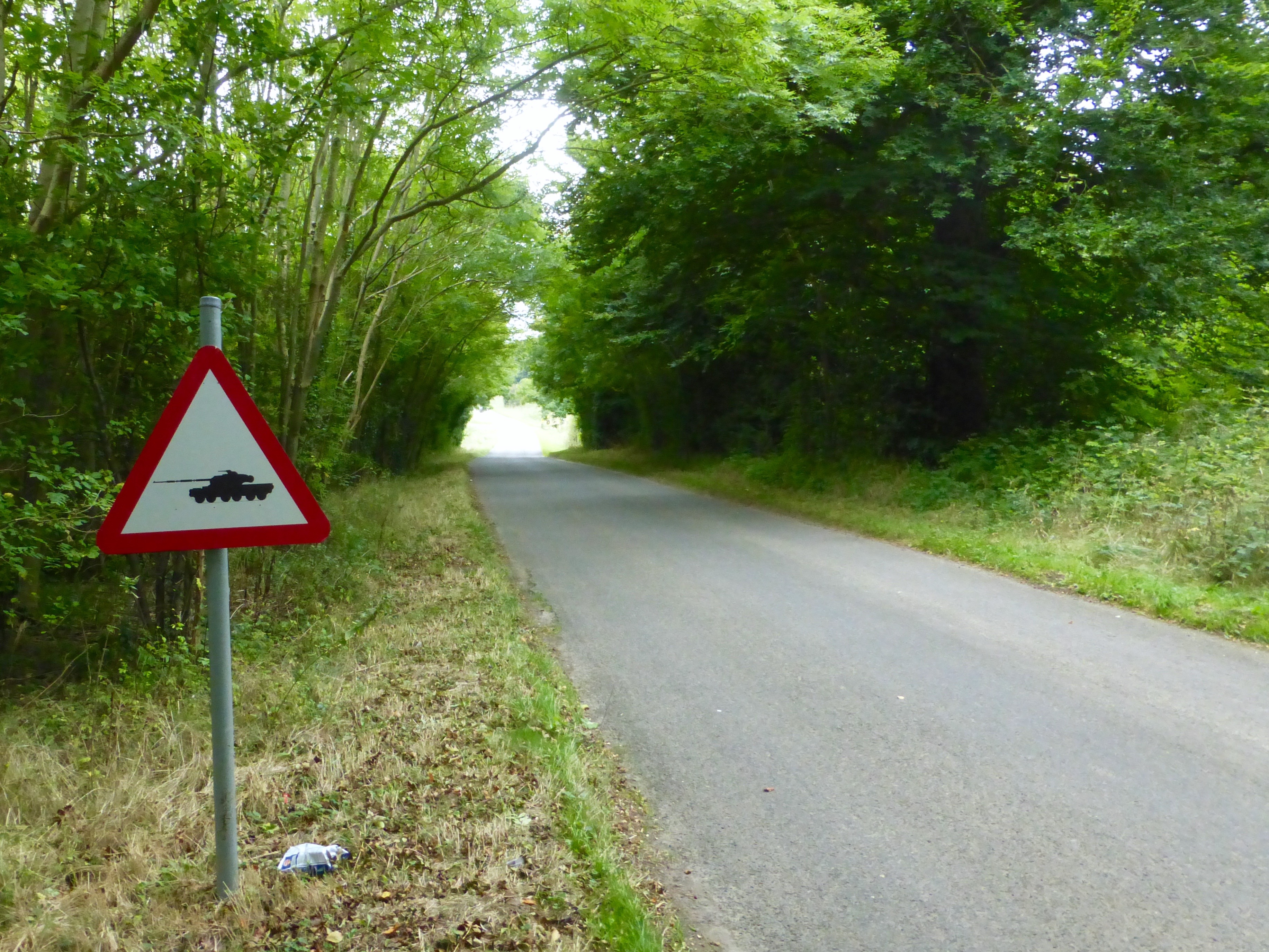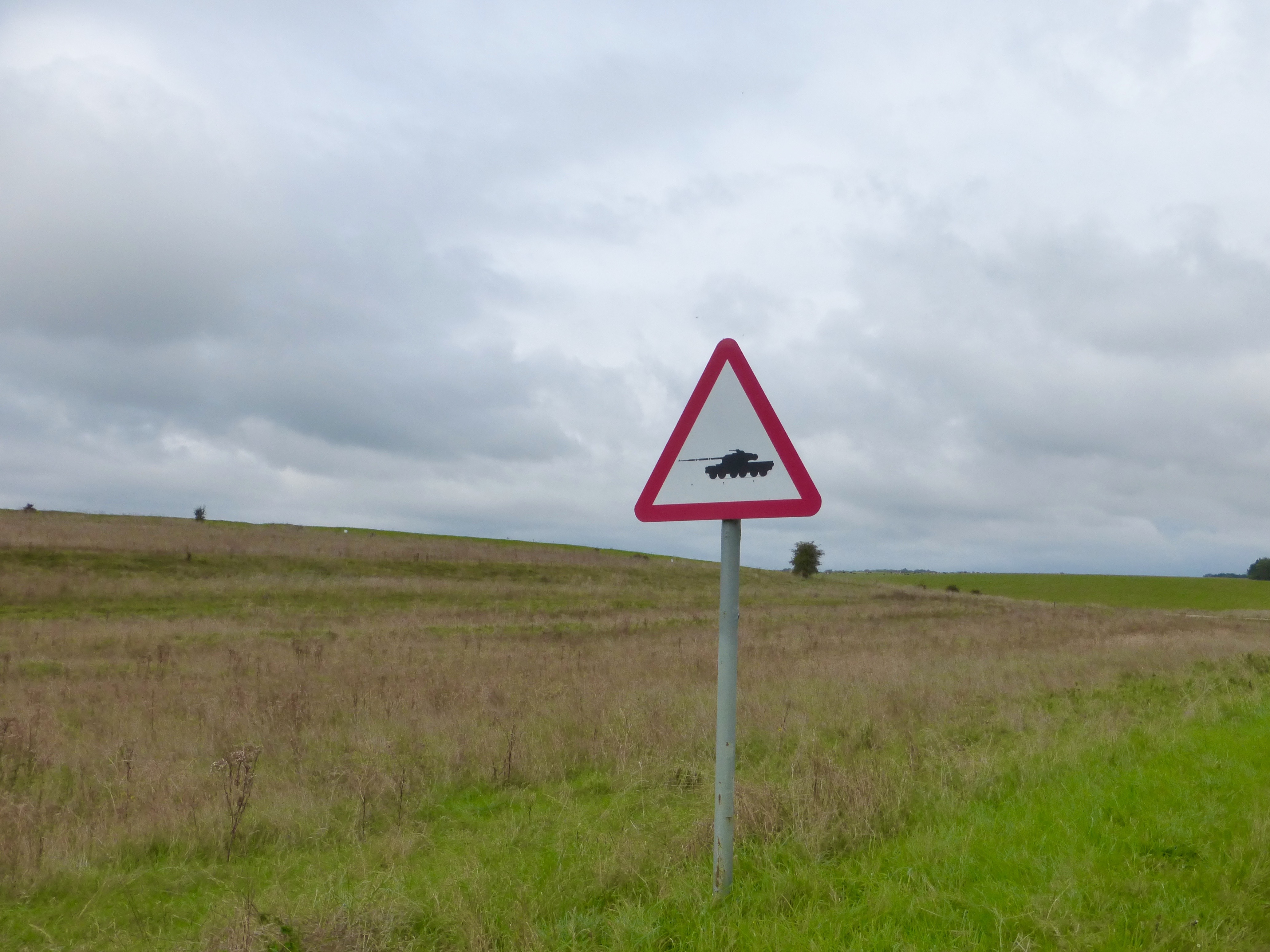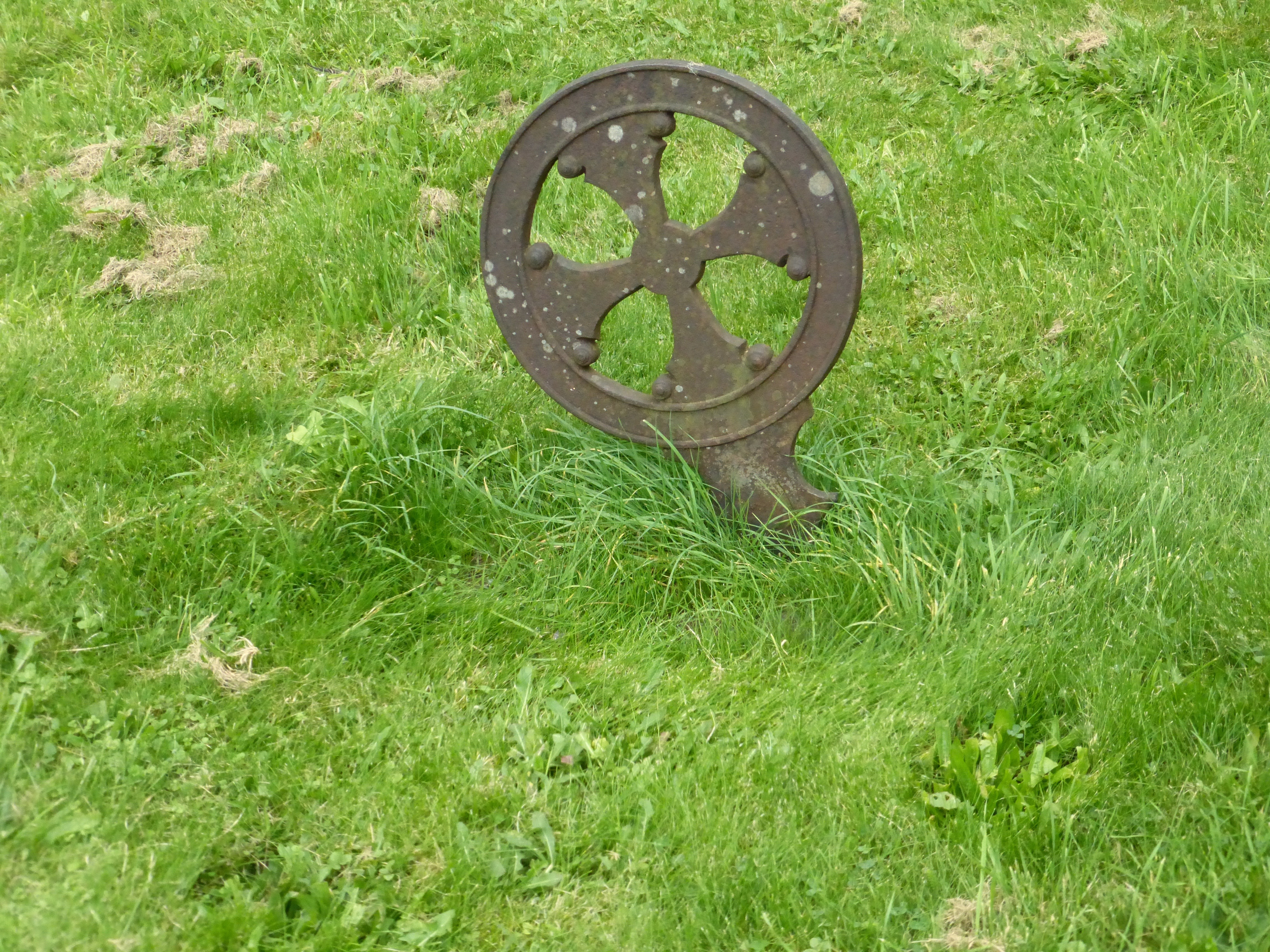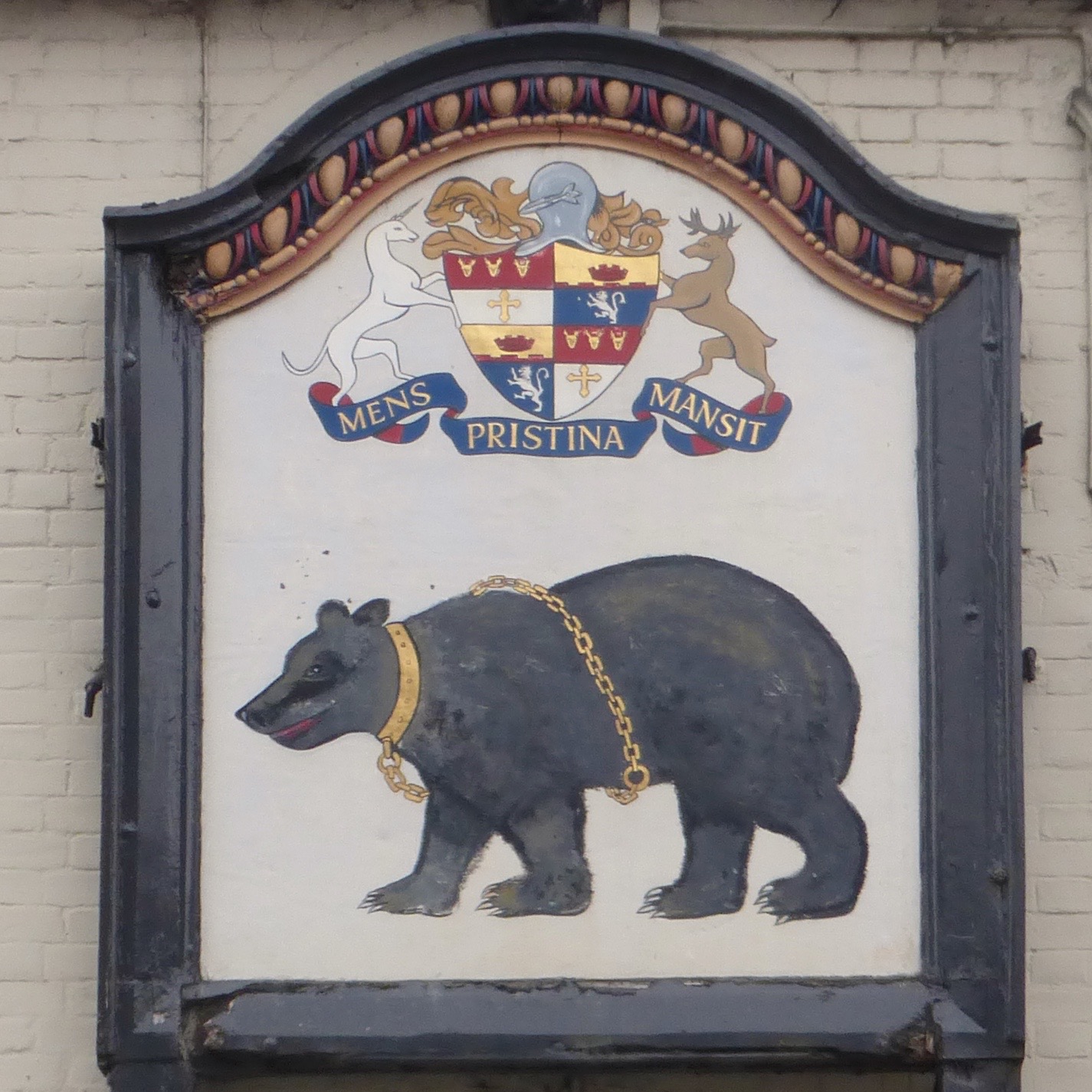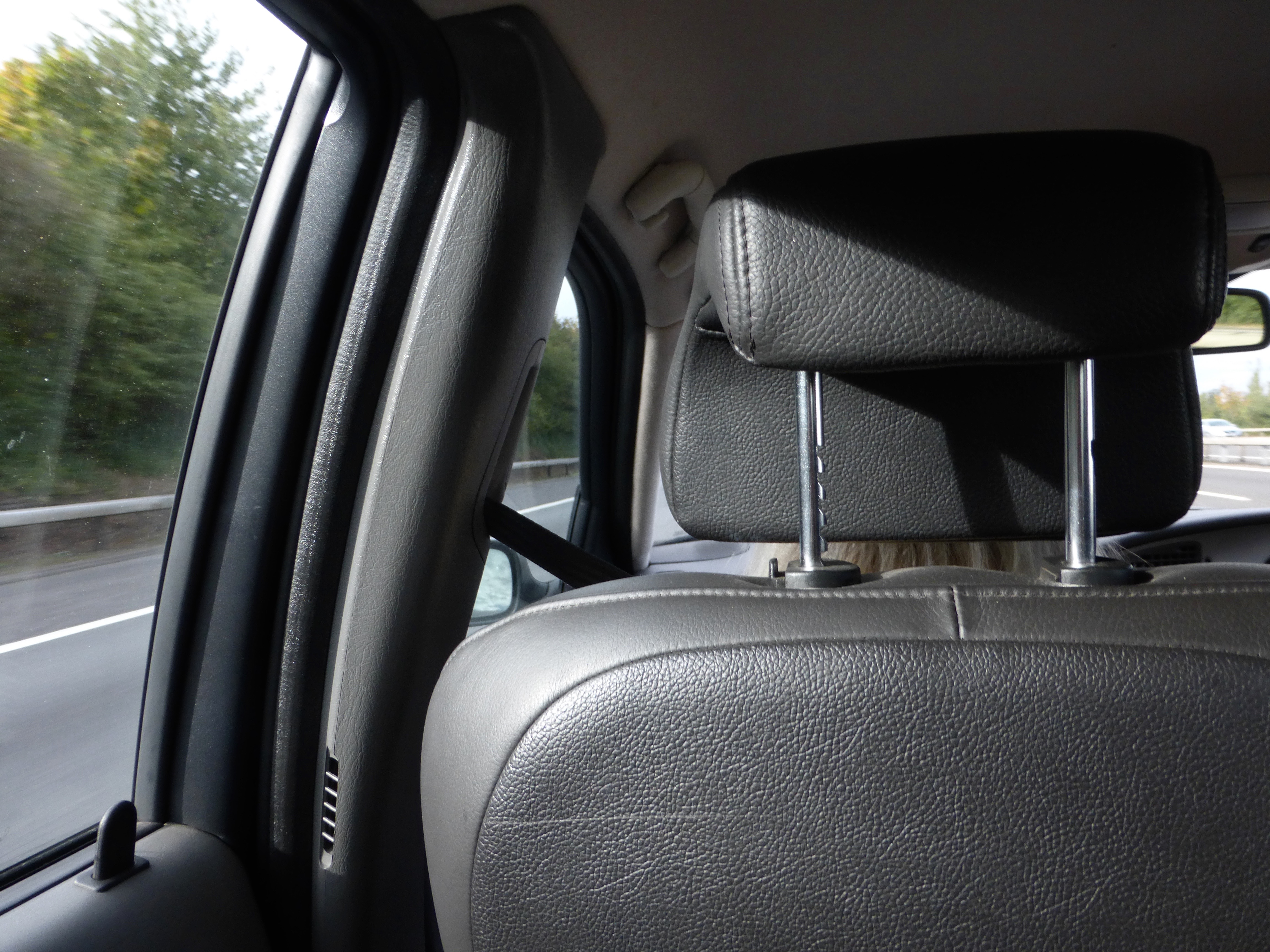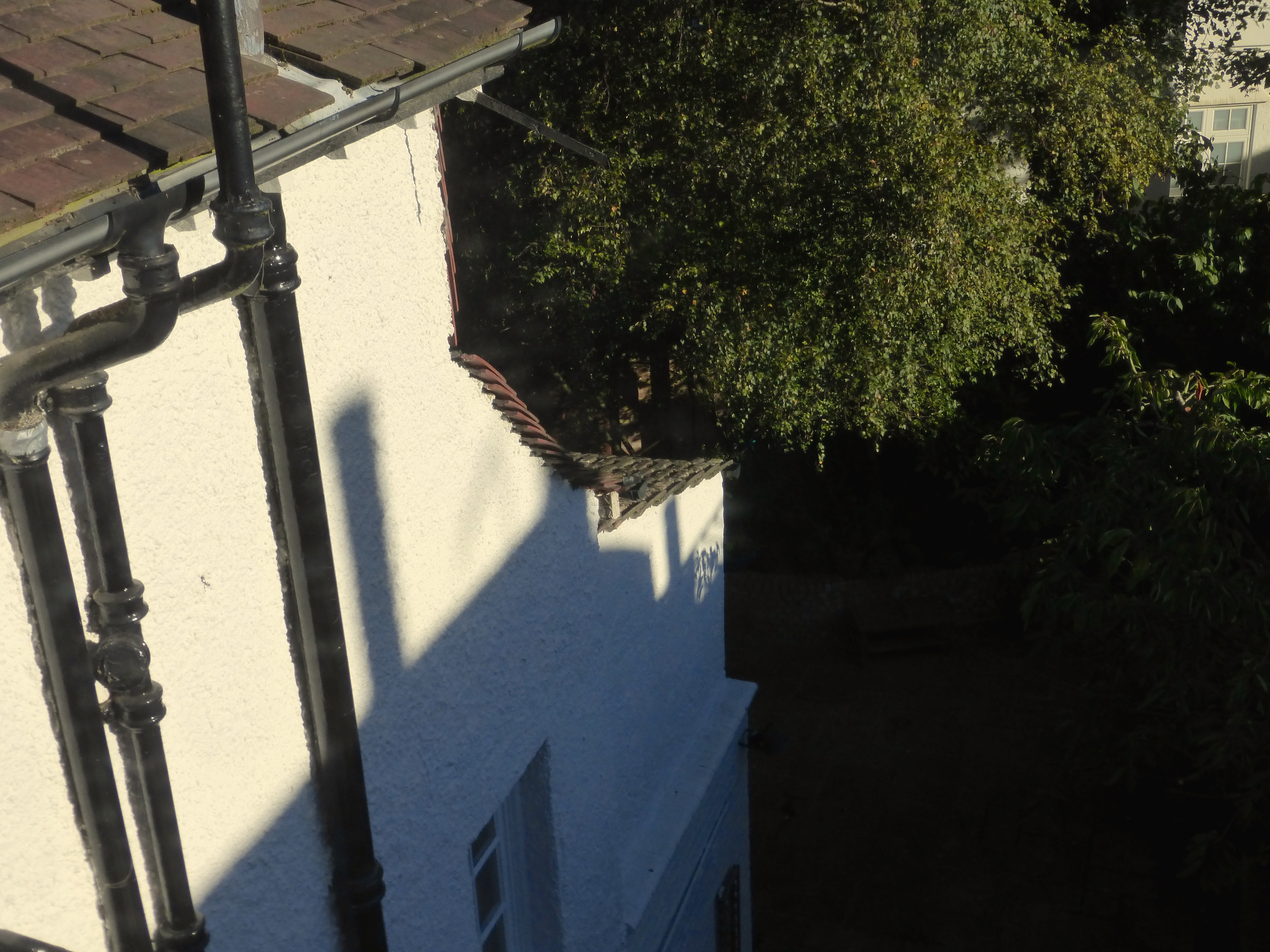Ah another night of these landscapes, their smell of cut grass and the architecture; all so familiar, like breakfasts at Rollestone featuring sausage and mushrooms, the light outside flat and damp; a primordial home. We gathered artisanal apples,
stopped into a sweet little church next door,
but still reached the Visitor Centre in time to peruse its displays before the first bus [“land train”] to Stonehenge
and, first bus ‘n’ all, managed to circumnavigate the Stones [the culmination of a series of landscape interventions beginning with, about 3,000 BC, a ditched circular mound with pits and wooden posts; the stones arrived maybe 500 years later] in advance of the crowds.
[Reconfigurations and refinements went on for another several hundred years, not counting contemporary restoration and adornment]
We made another circuit, among the growing hordes, but sightlines remained pretty good
nonetheless, a popular and populous place, of pre- and historic resonance on many levels.
Eschewing the land train we walked a pleasant mile and a half, initially passing the Cursus Barrows [Bronze Age burial mounds built well after the stones were erected but still regarded as a Sacred Place]
and maybe half of the length of the Cursus [an extended ditch/bank oval of unknown purpose predating Stonehenge by some five hundred years], barely visible as a pair of parallel mounds in the grass
to reach, at the western extremity, a vista reminiscent of eastern Oregon, but much much greener.
Back at the the Centre’s museum one particularly striking revelation was that, being cut into chalk, the original excavations resulted in stark whiteness wherever anything was disturbed, not so apparent now with grasses overall but incredibly vivid then.
We were treated, within one of the Heritage Site’s period-correct neolithic wattle and daub huts,
to fascinating demonstrations of neolithic tools and their making [not shown],
then returned to Shrewton and yet another 12th century church [thick on the ground these things are], with some simple but lovely details [though I hope that “Trump” in the inscription is an abbreviated “Trumpet” and not some dire prophesy for our present day].
From there we turned for home, crossing the Danger Area seeking Tank Crossings with which, after initial disappointments around Rollestone Camp and even the Army town of Larkhill [not to mention Durrington, Hackthorn, Alton, and Neteravon], we had spectacular success from Haxton
to East Everleigh, where the signage became more peaceable.
A bit after two we were in Hungerford, hungering for fish and chips at The Bear [quite good, really],
which were followed by the Most Anomalous Missed Automotive Sighting of the entire trip [even more exotic than that matte Marylebone OD Bentley], a classic bright yellow ’56 Ford hotrod pickup rolling towards the roundabout as we swung out towards London, but the camera, napping in its case, was unavailable.
Nonetheless, east and home well in advance of Tycho’s return.
Next up; 21st century Commerce!
M
